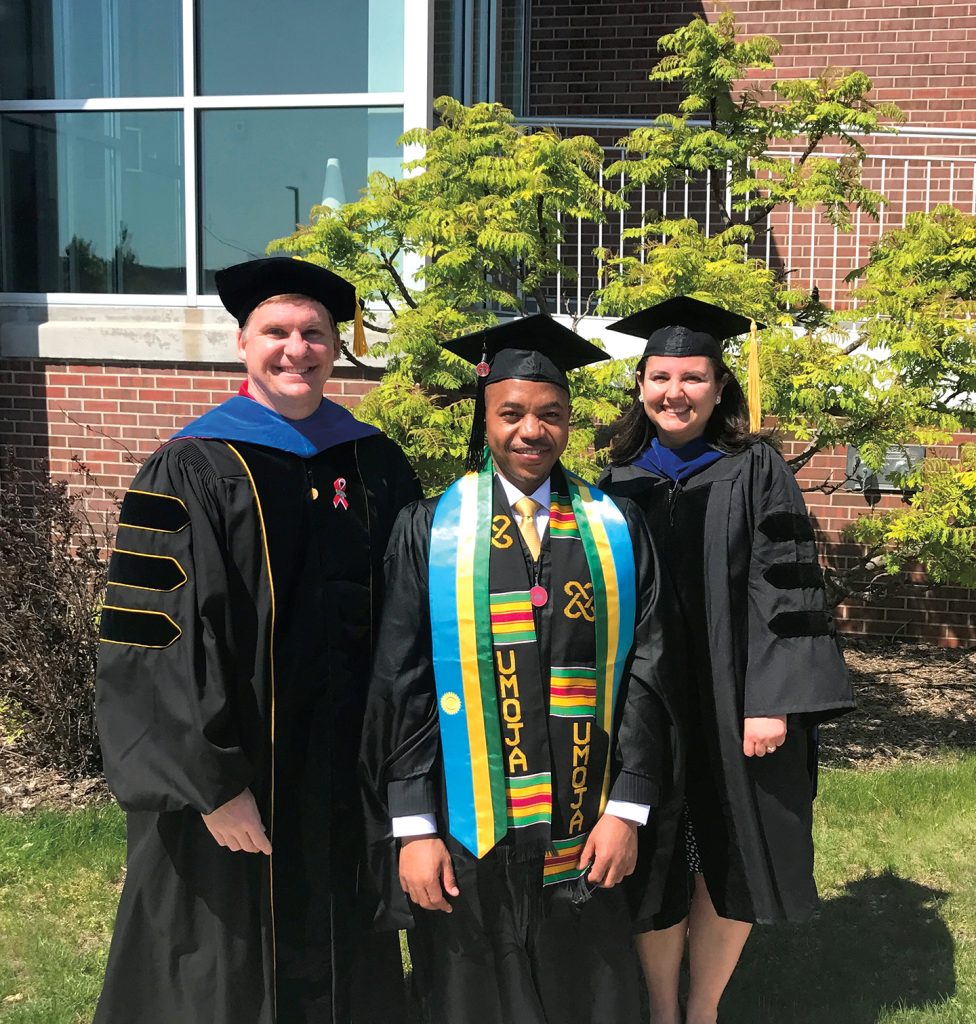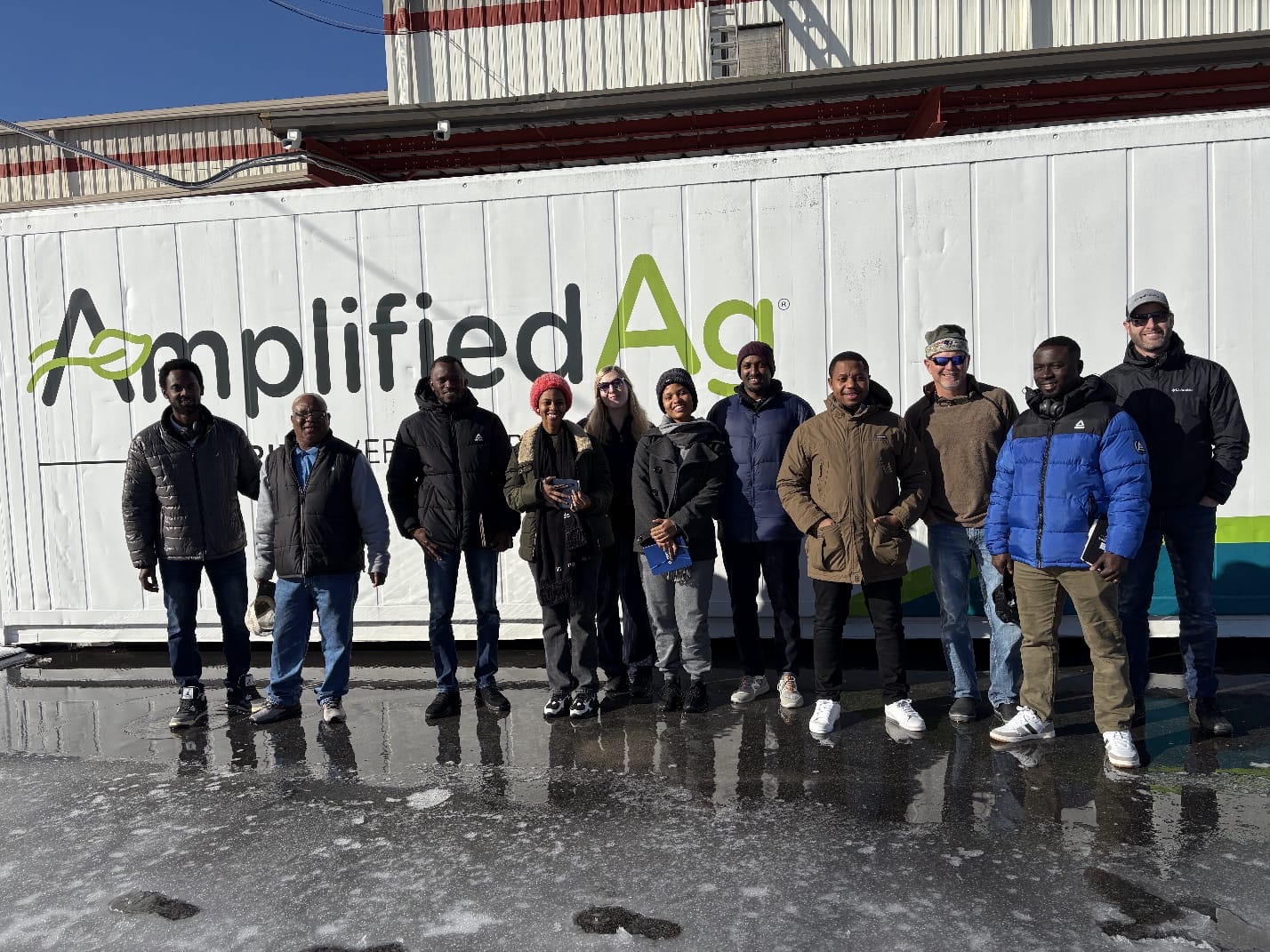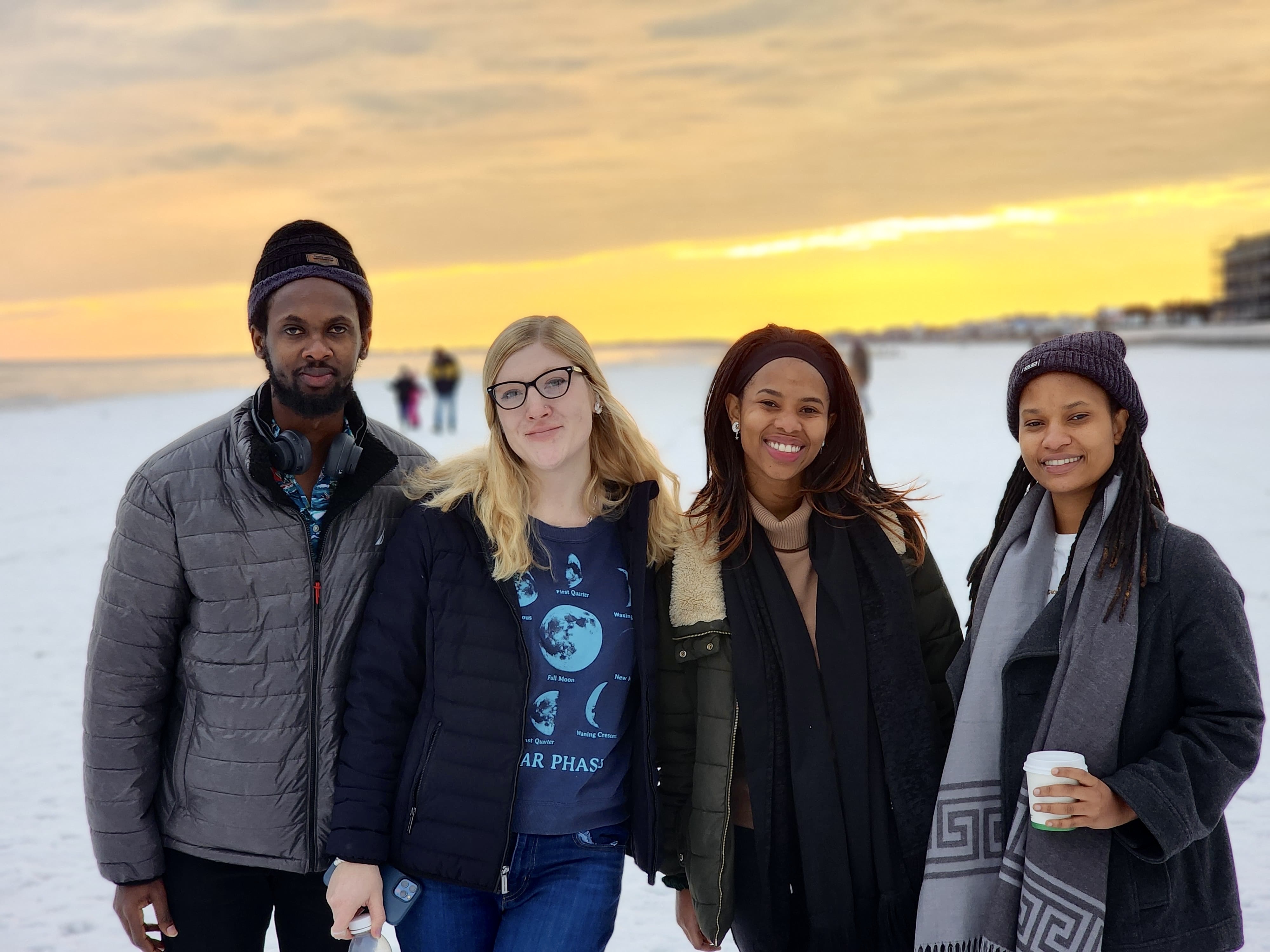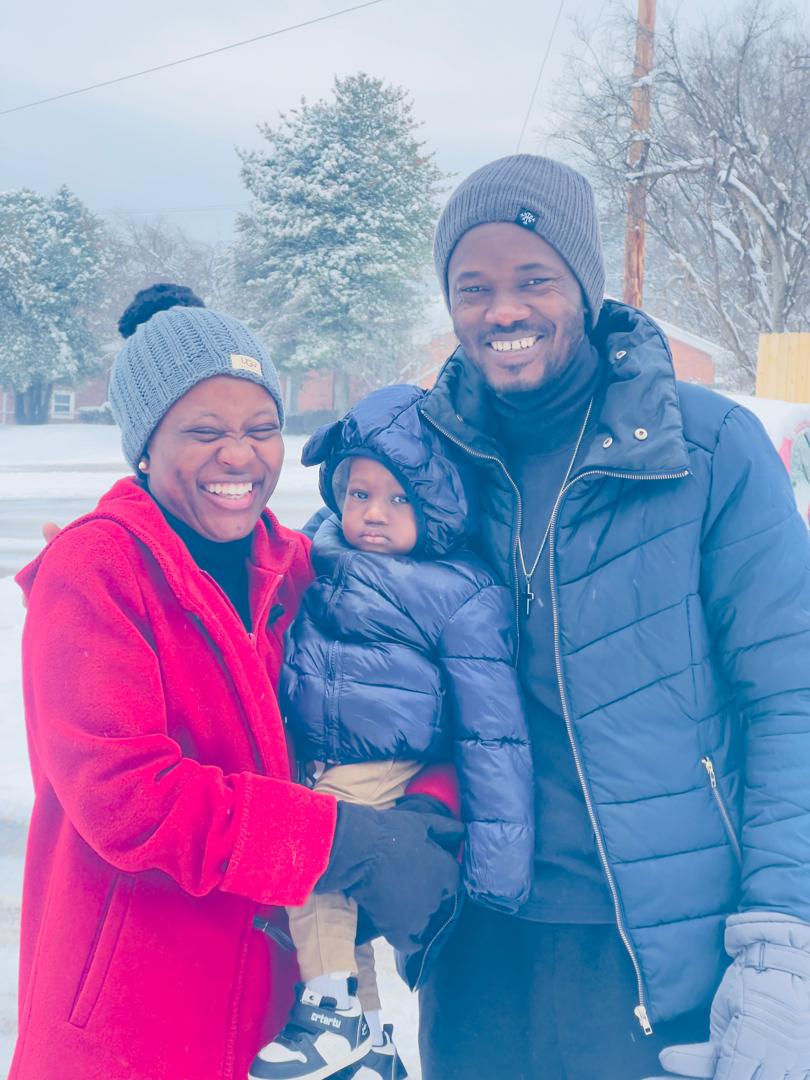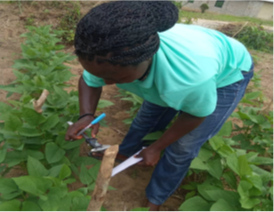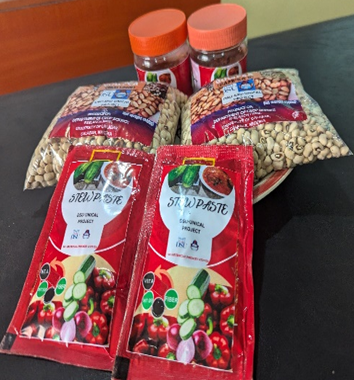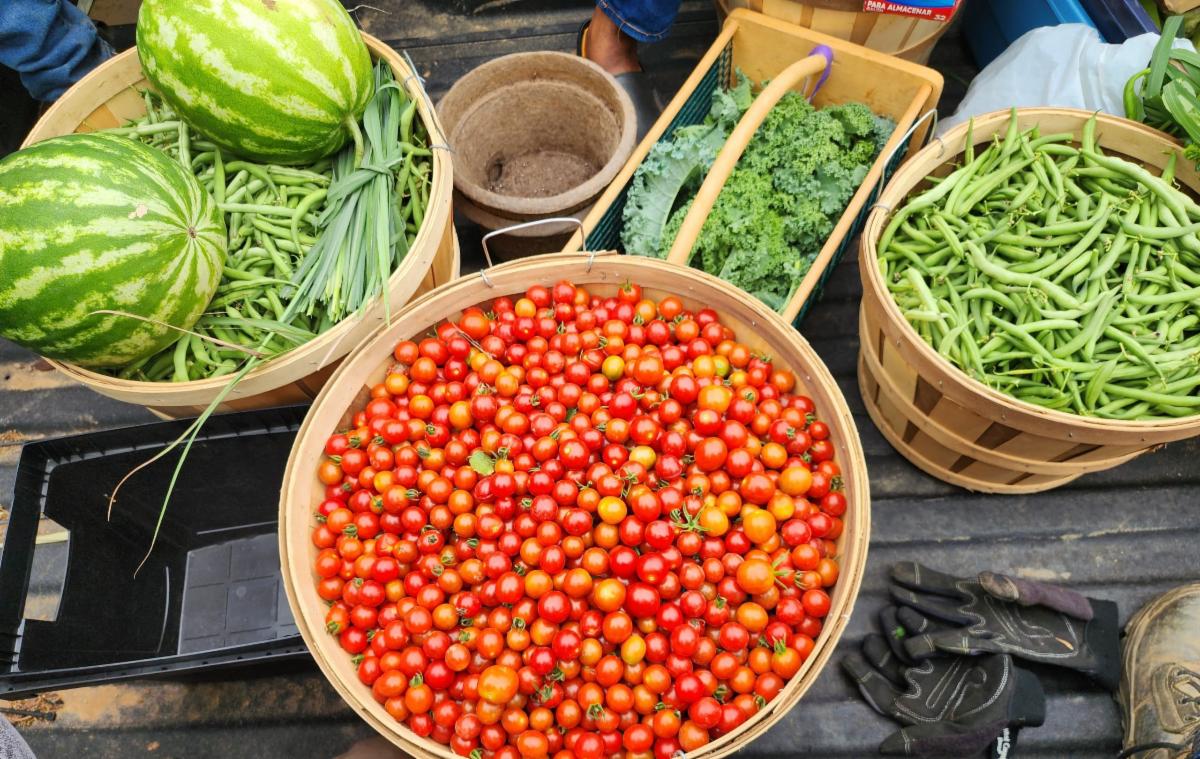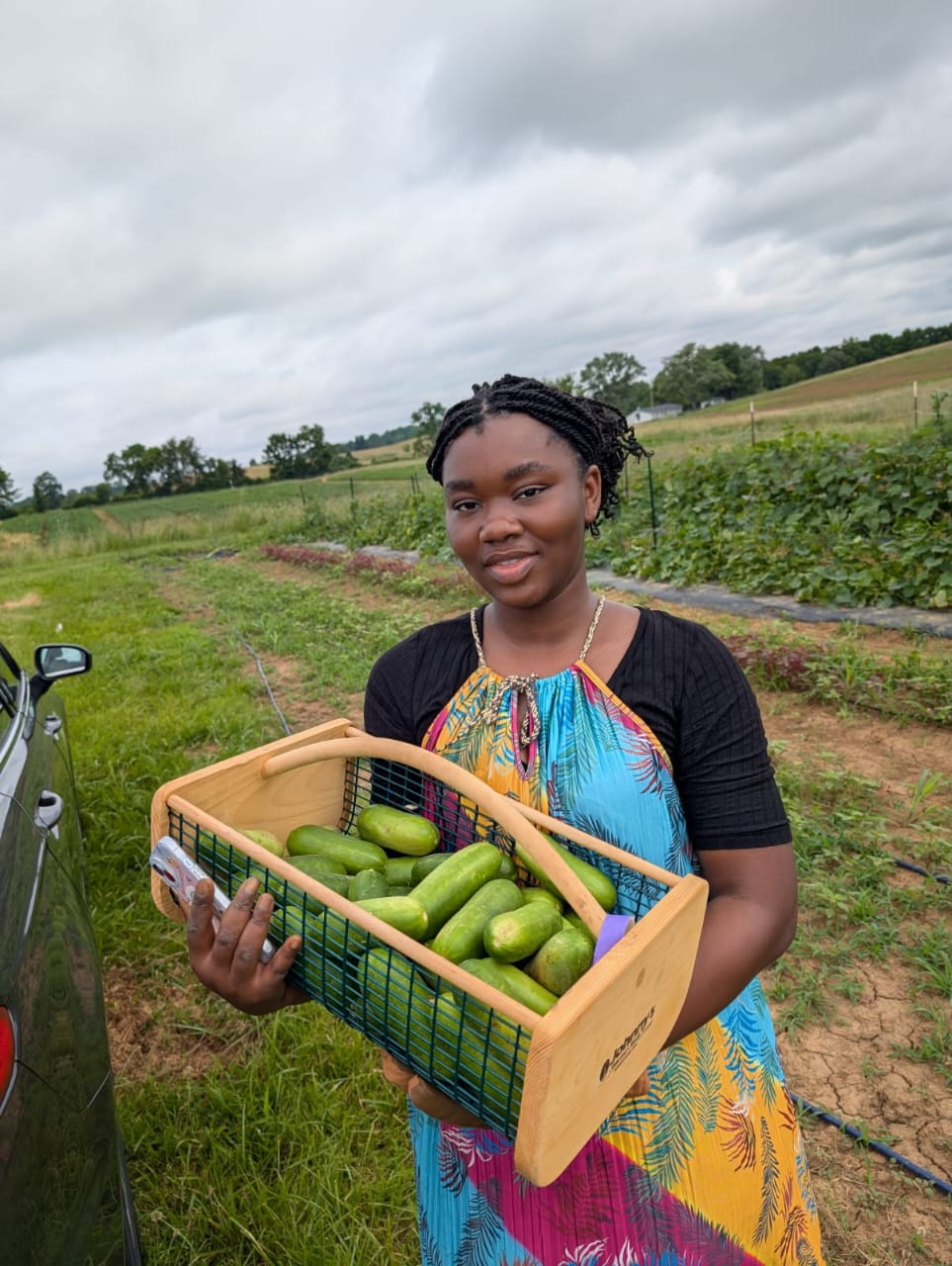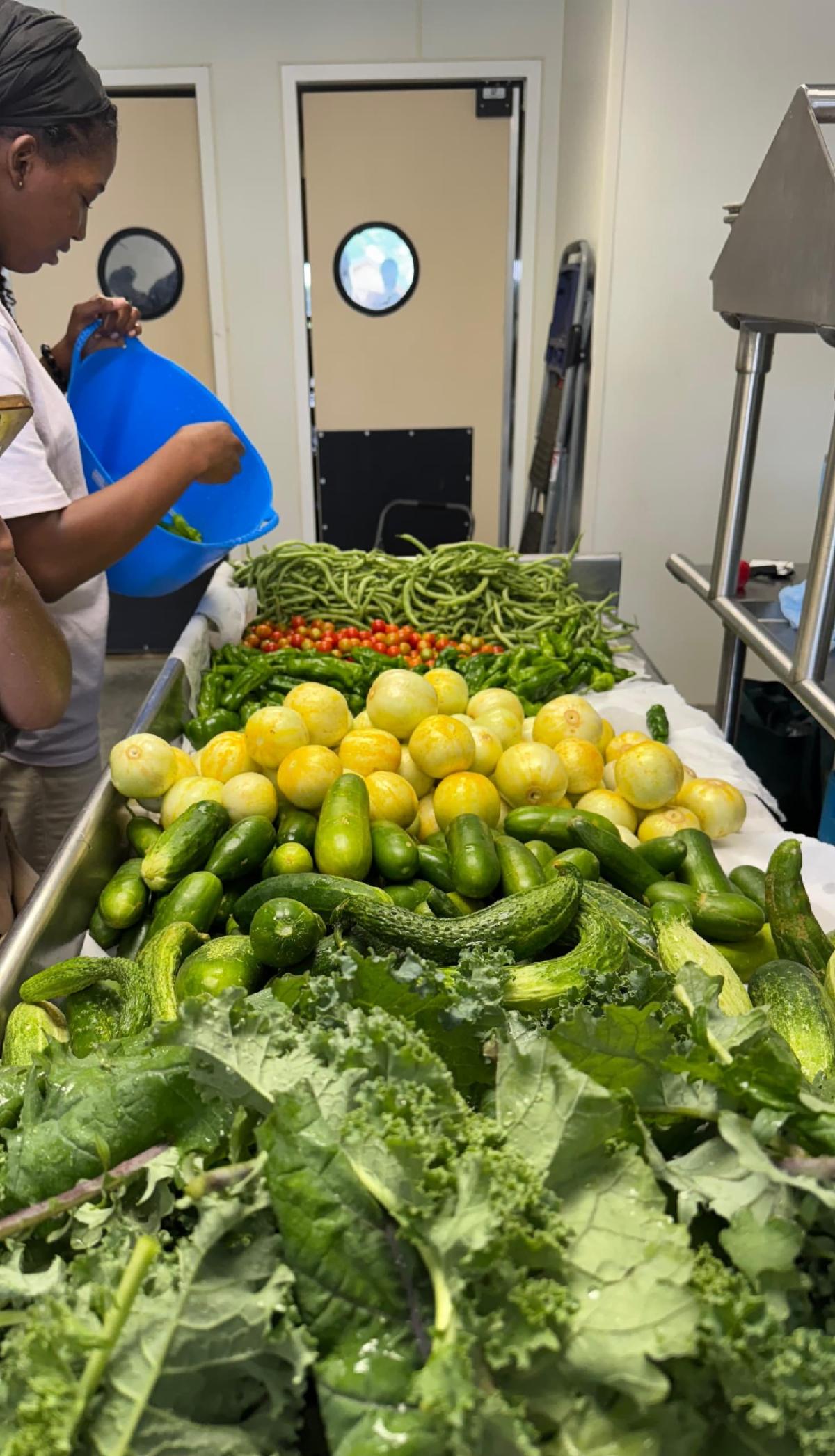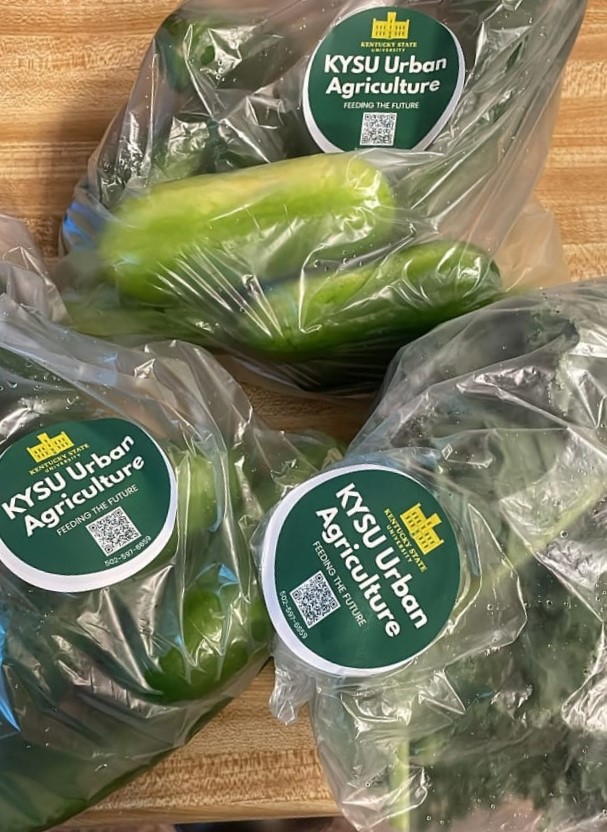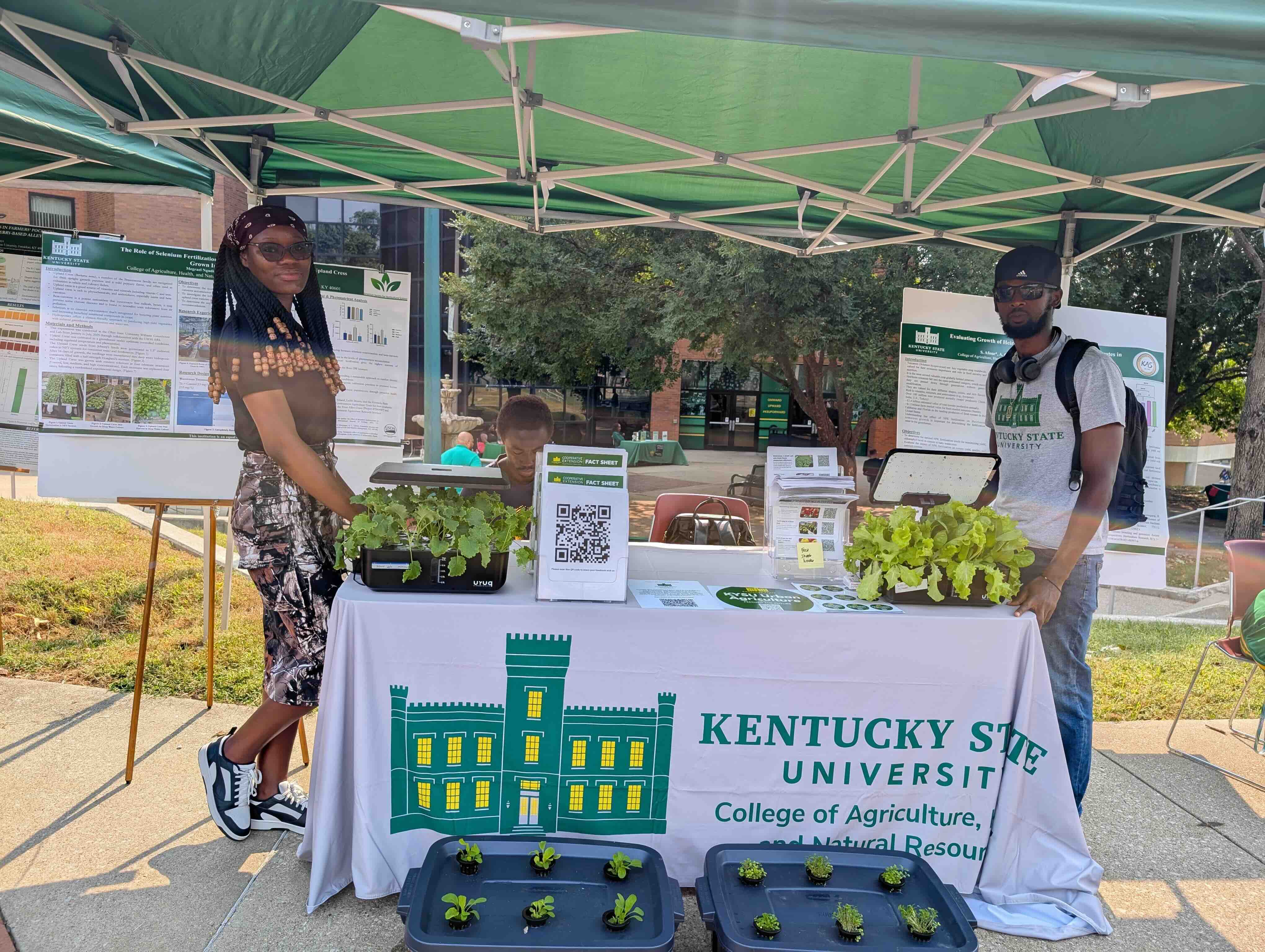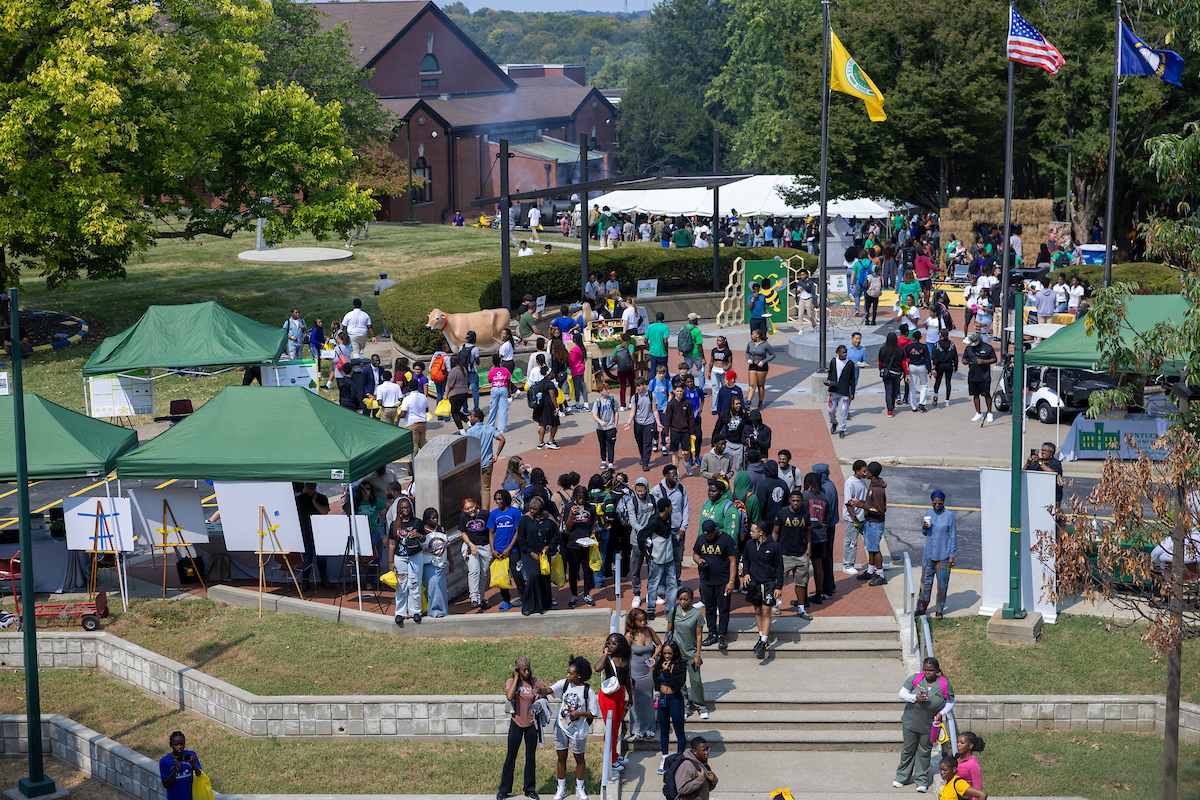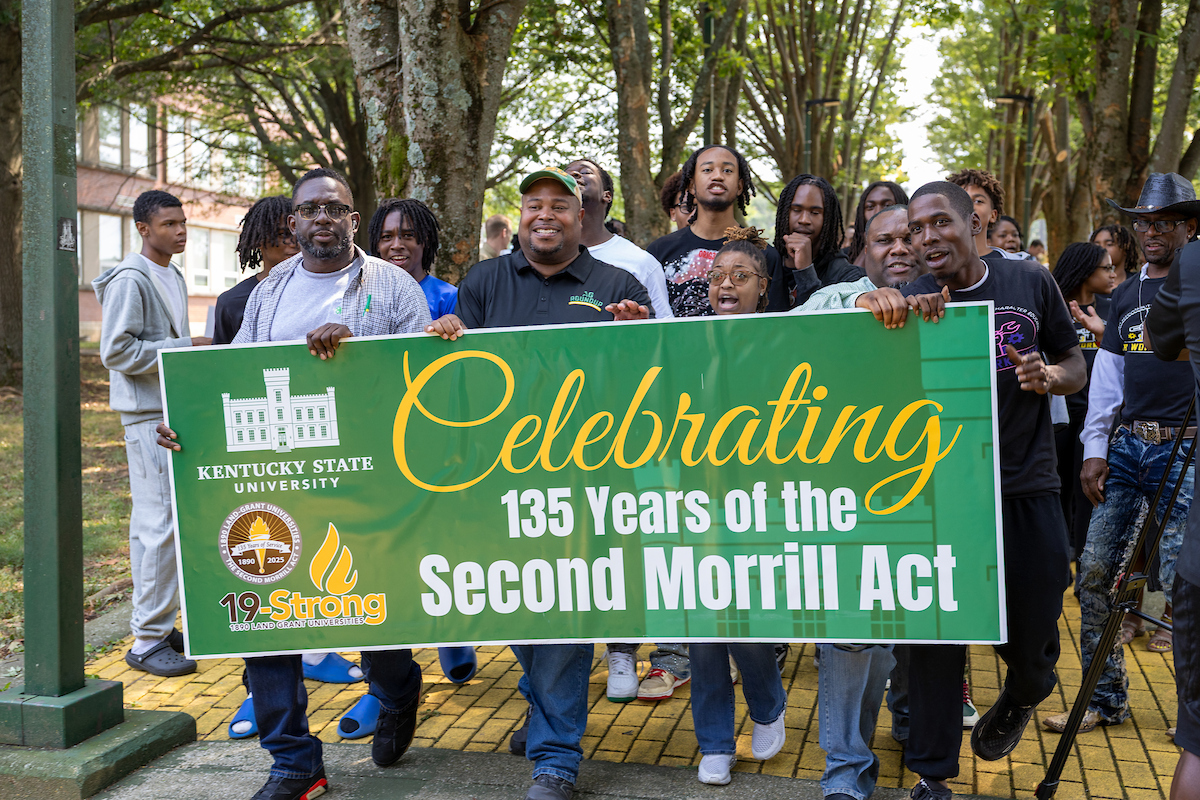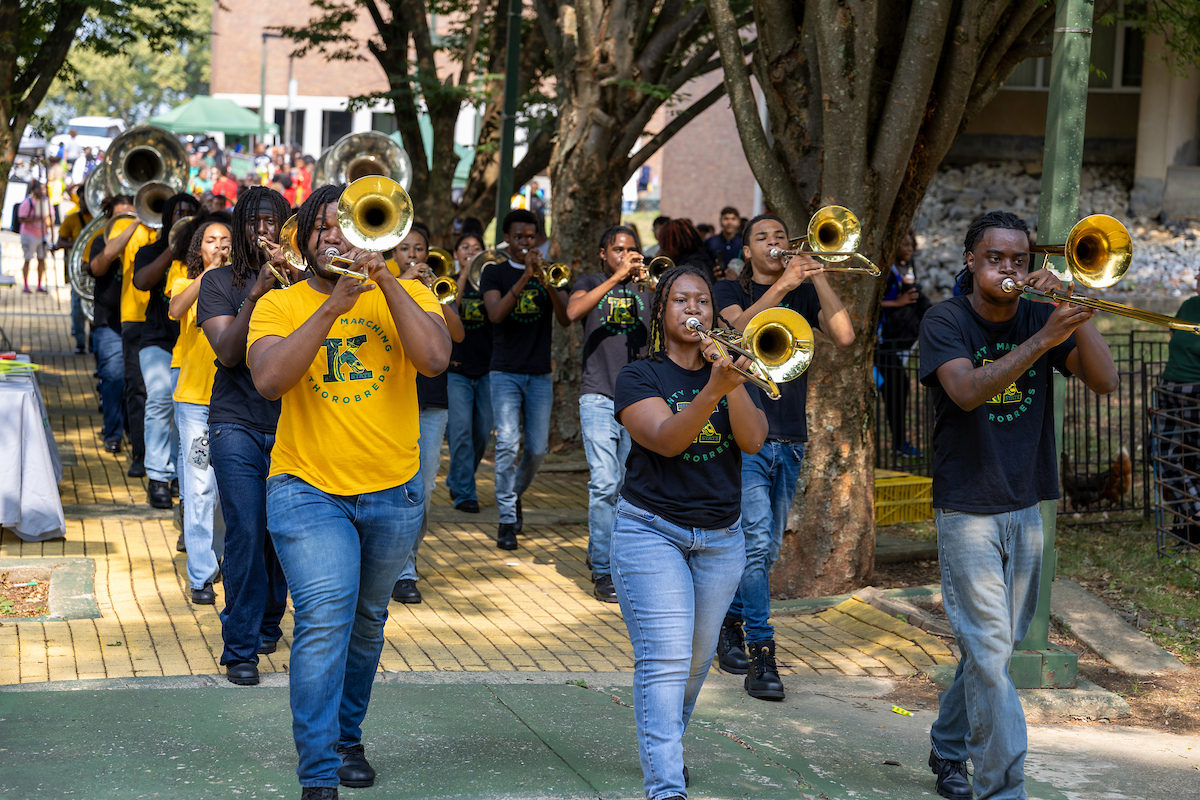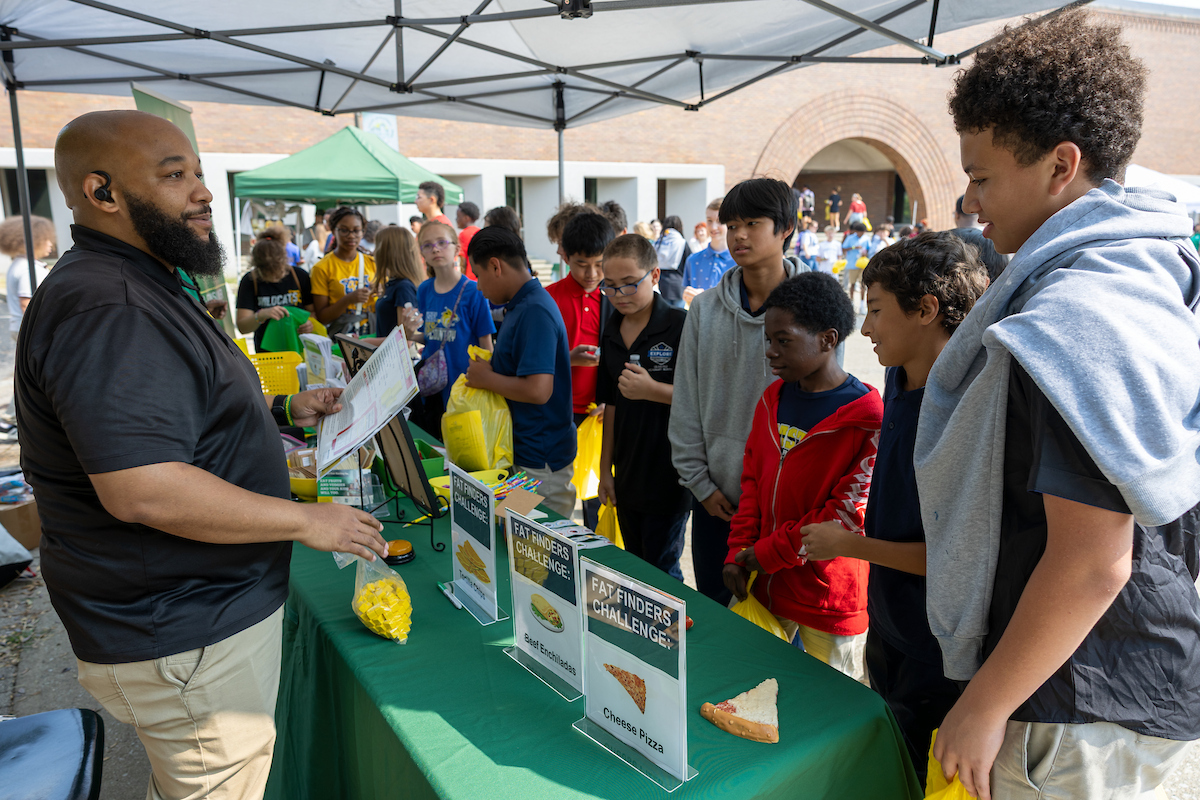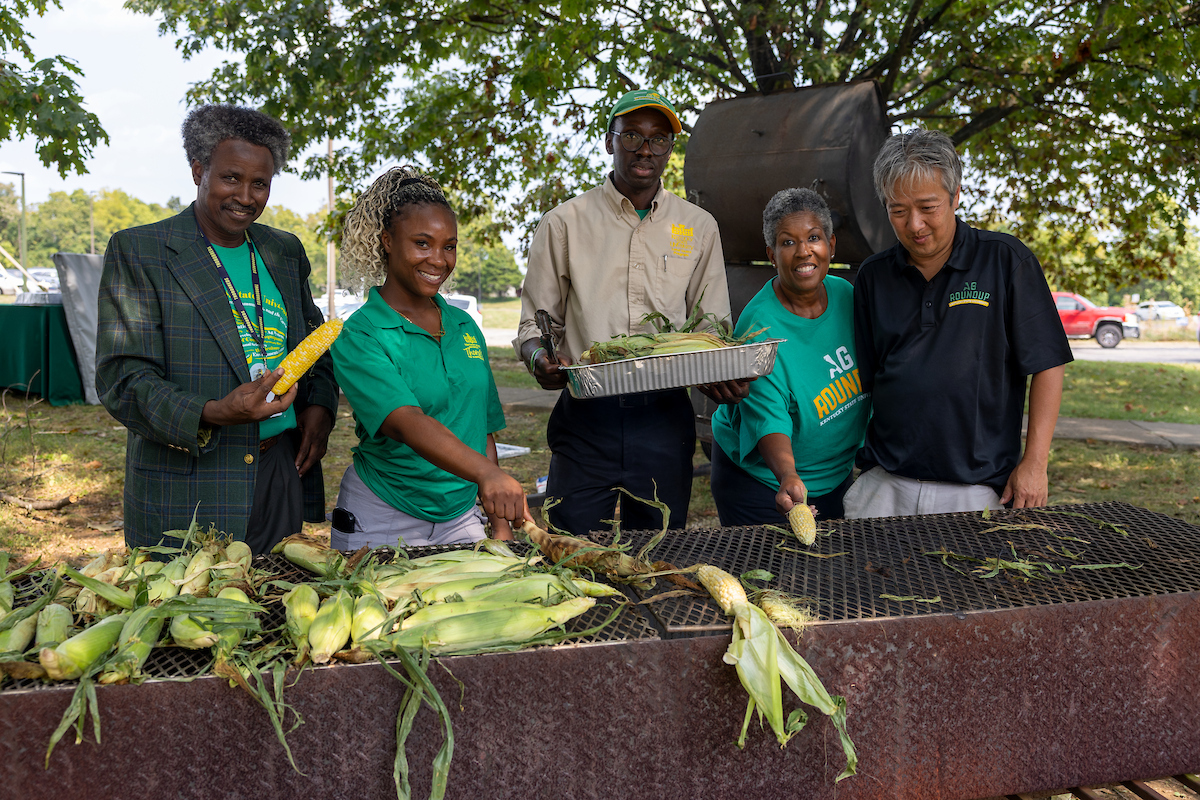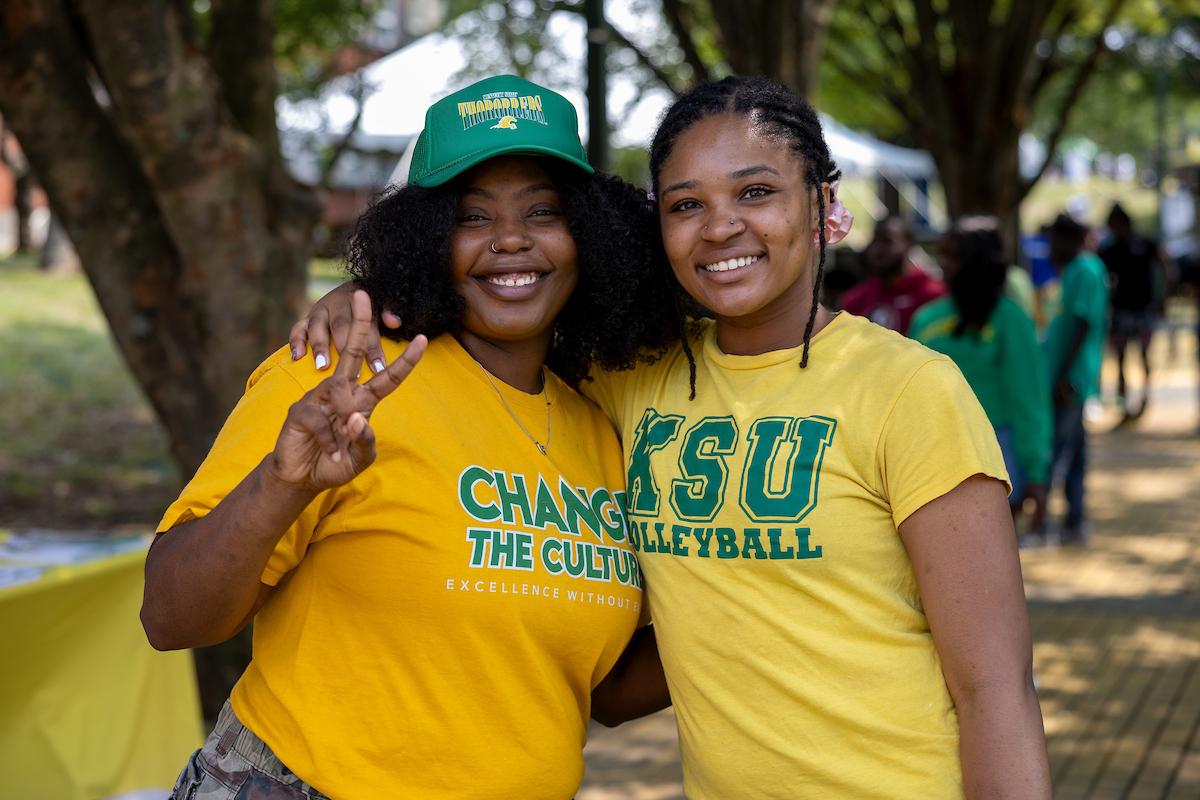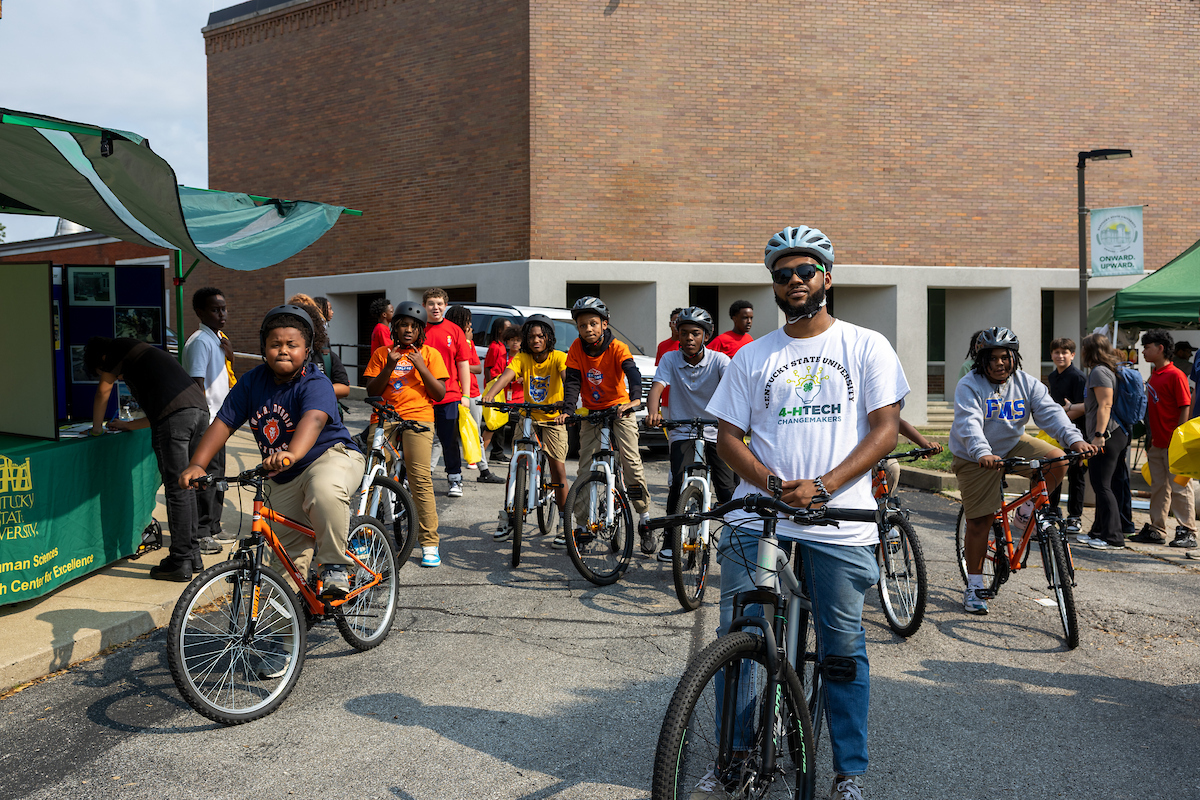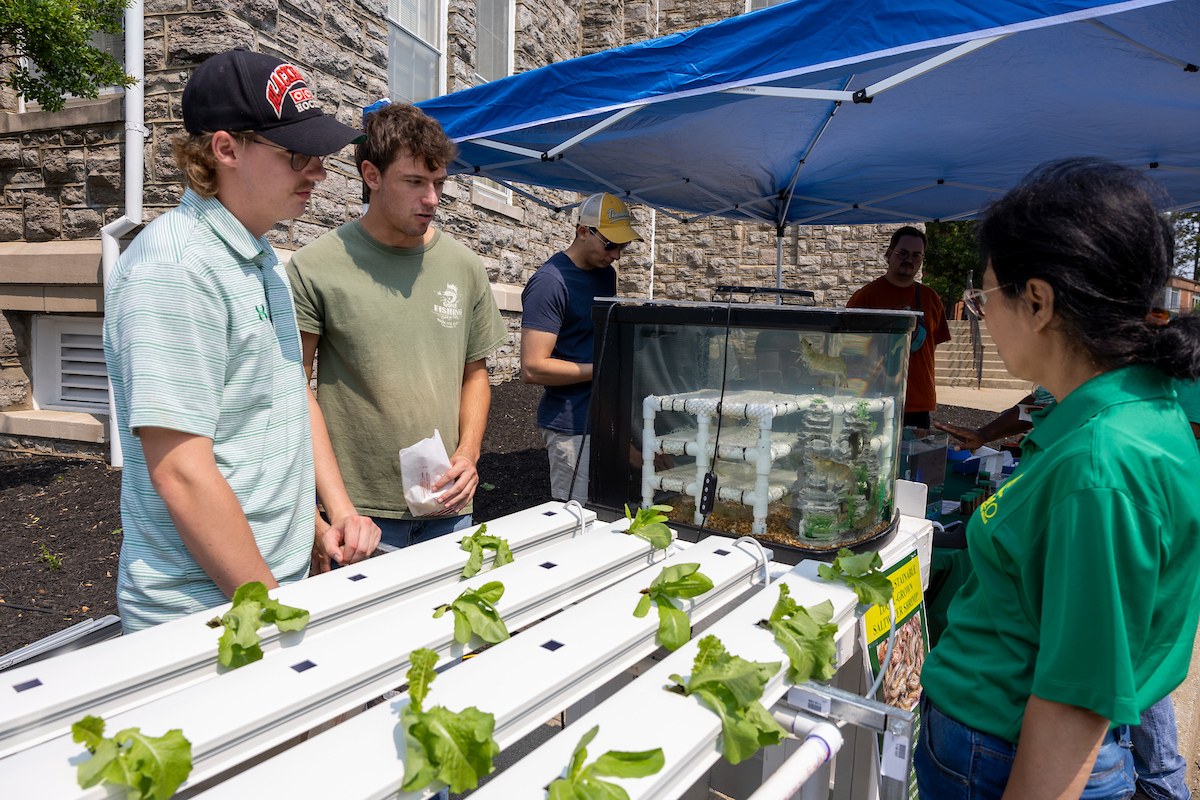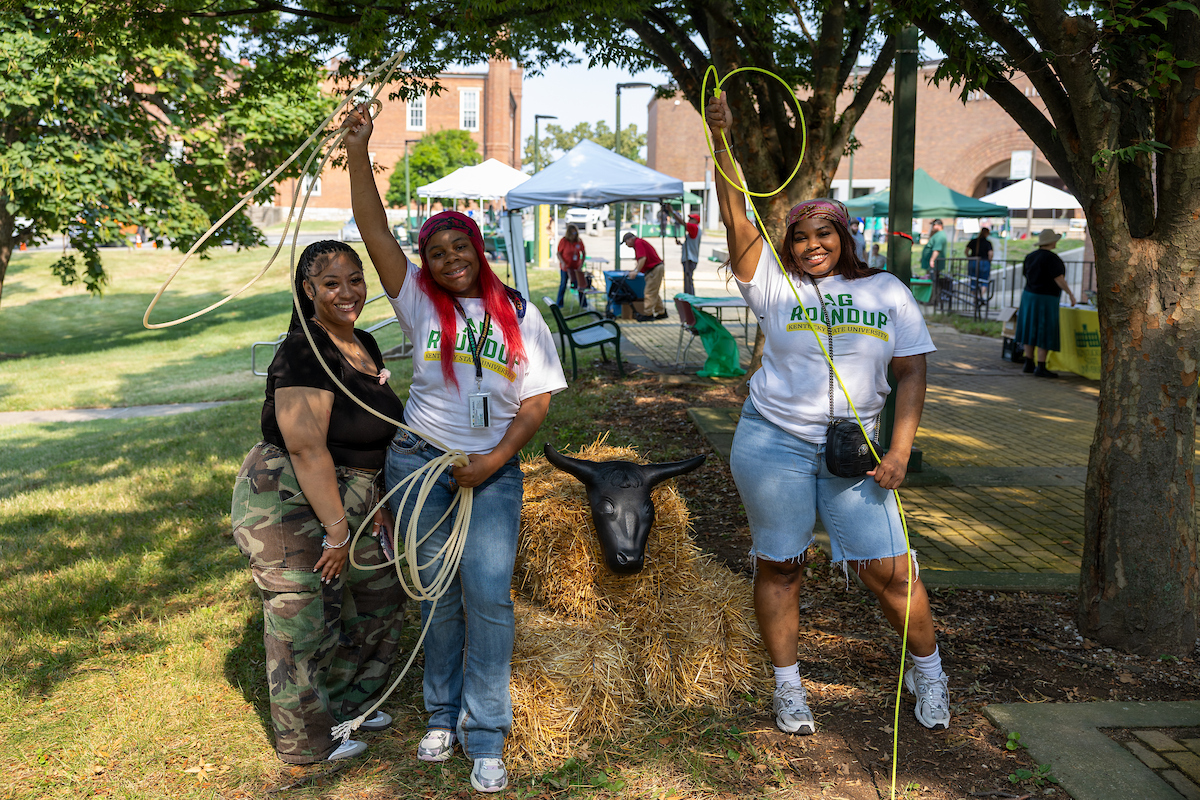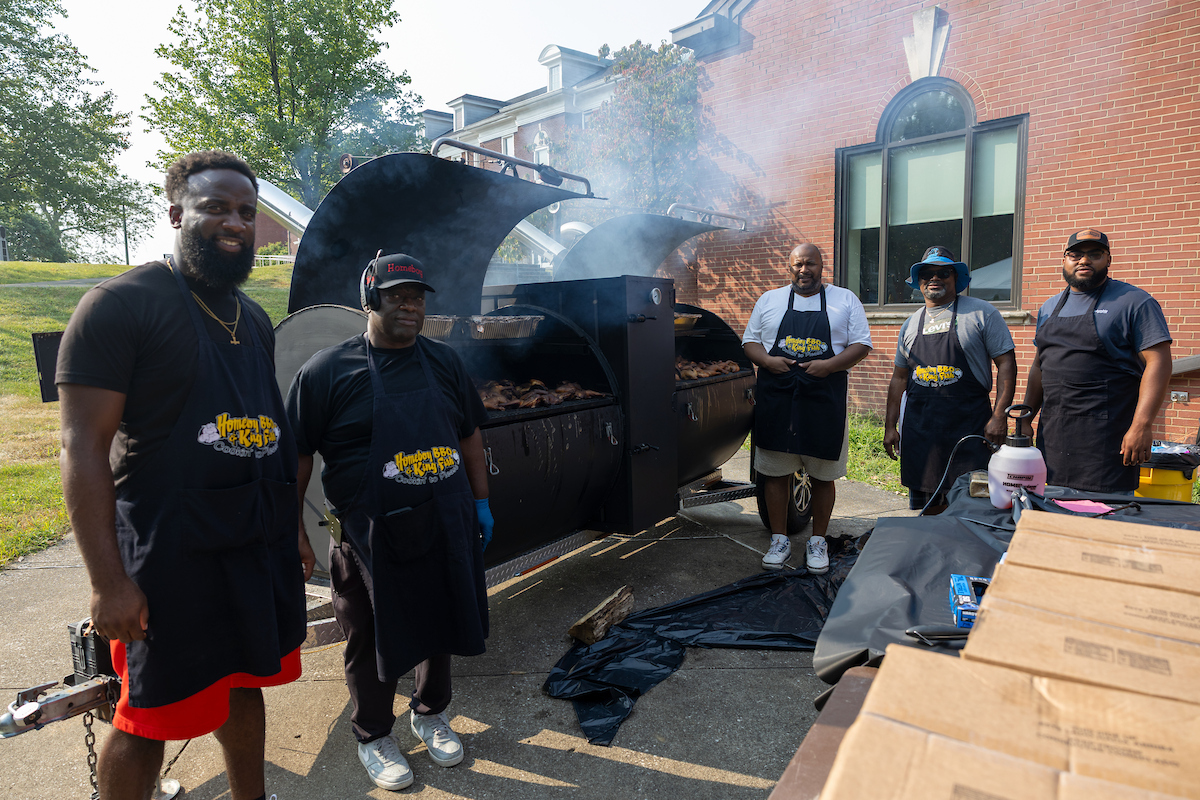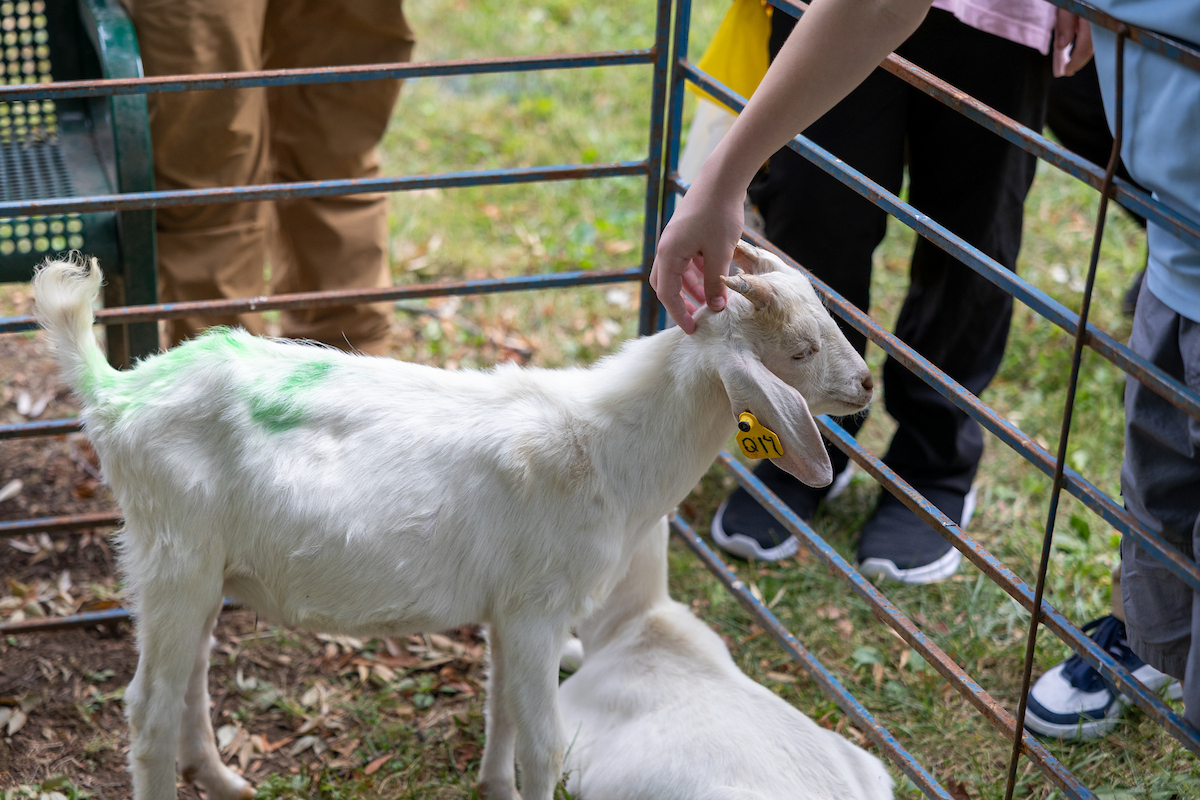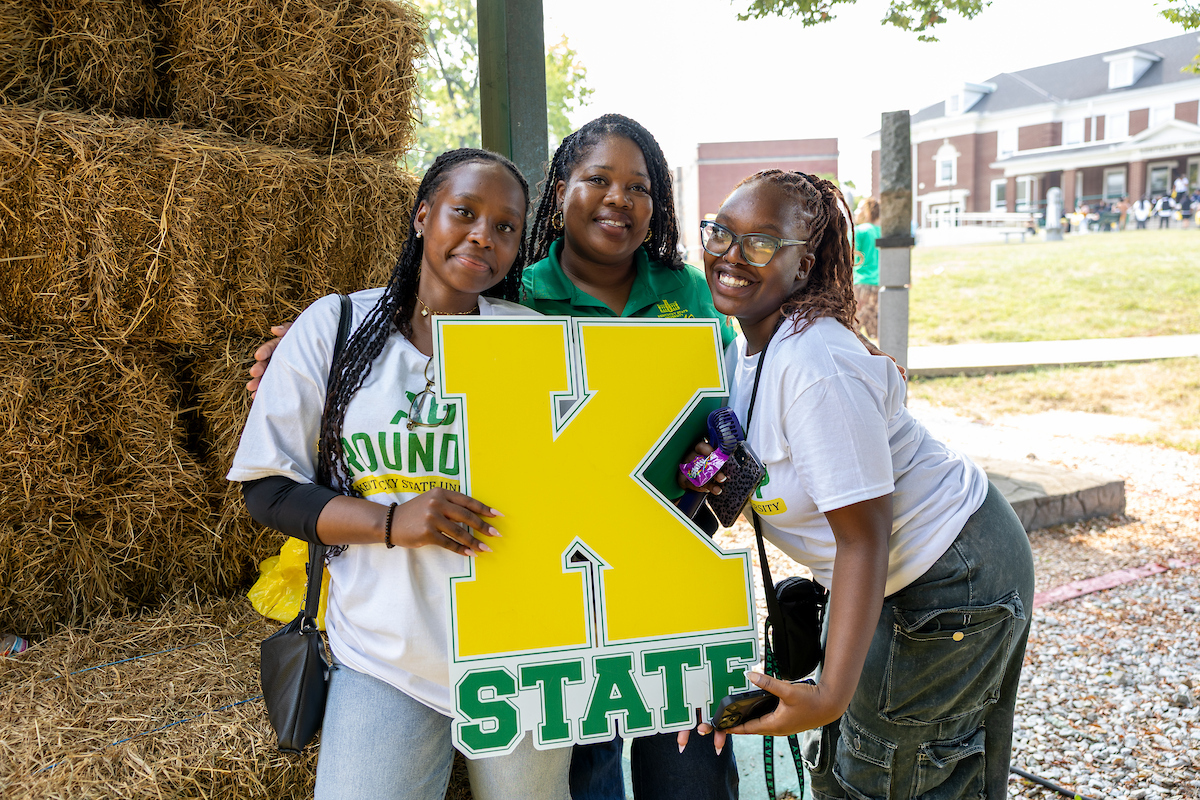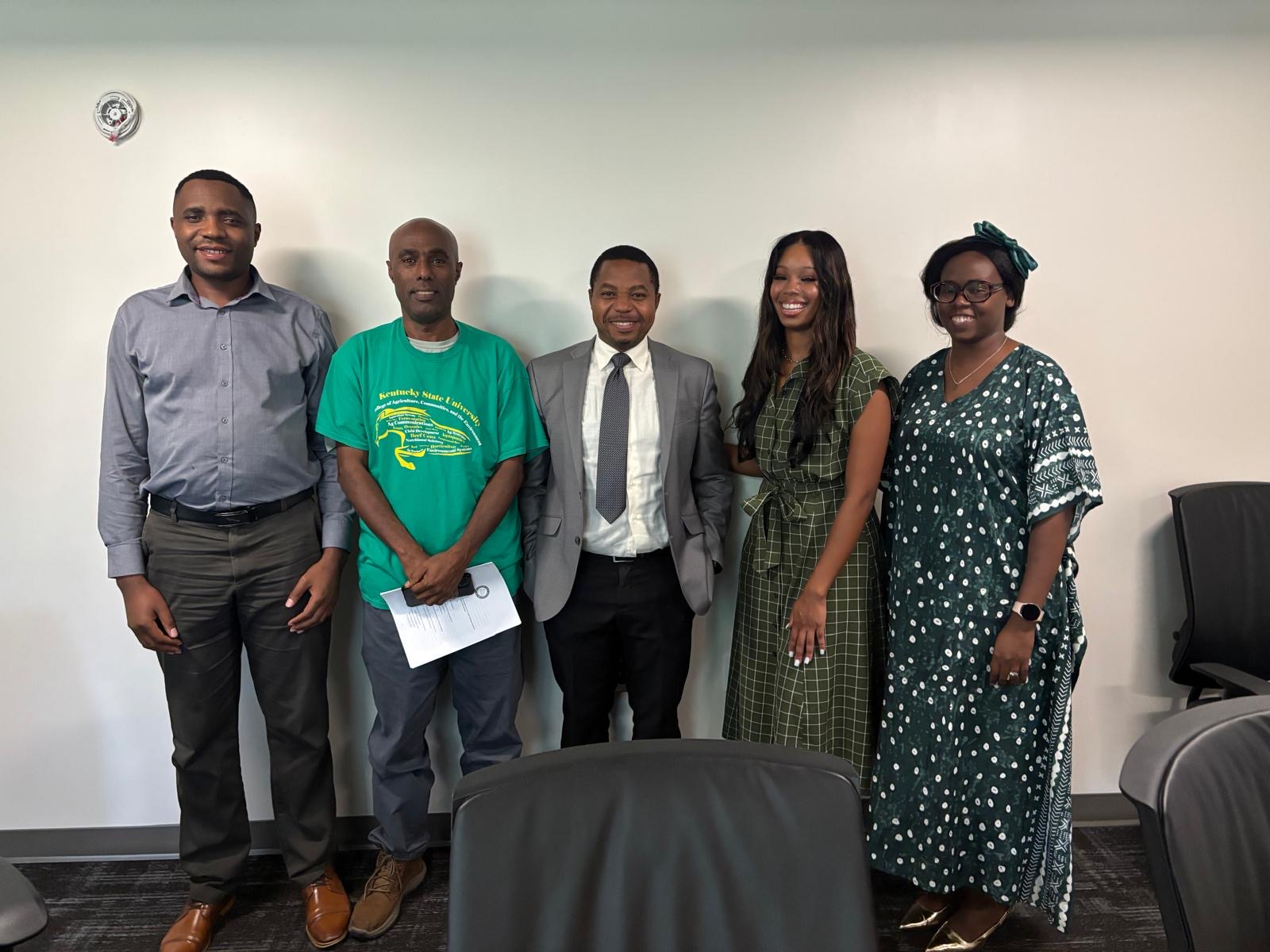News Features
Kentucky State University Urban / CEA Agriculture News Features
Urban Agriculture Extension Representation at the Fruit and Vegetable Conference in Bowling Green, KY, and Organic Agriculture Conference in Frankfort, KY, 2026
The Urban Agriculture Extension Agent, Cora Teets, showcased the Urban Agriculture research and extension publications at the annual Kentucky Fruit and Vegetable Conference from January 11th-13th, 2026, in Bowling Green, KY, where farmers across the commonwealth of Kentucky came and learned from one another and created a vision for the new year ahead. The conference is devoted to fruit, vegetable, and cut flower production, handling, harvesting, marketing, storage, and related topics. Approximately 500 growers, researchers, and technical service providers attend the Kentucky Fruit and Vegetable Conference each year. She also advocated for the Urban Ag program at the Organic Agriculture Conference OAK from January 30th-31st at the Harold Benson Farm in Frankfort, Kentucky. OAK’s annual conference includes a growing audience of hundreds of Kentuckians and neighbors active in the region’s food systems: farmers, researchers, nonprofit professionals, federal and state agency partners, technical service providers, and conscious consumers working collectively to build a resilient local food system for all. Collaboration among these diverse voices, grounded in the connection to Kentucky farms, soil, and communities, provides a rich foundation for learning and growth. It is inspiring and motivating to work with farmers and help them receive access to resources and provide information and resources they need to be successful.
Alex Kofi Successfully Defends His Master's Thesis Study: Magnesium Fertilization Affects Carotenoid and Mineral Element Accumulation in Three Kale (Brassica oleracea var. Acephala) Cultivars Grown Hydroponically
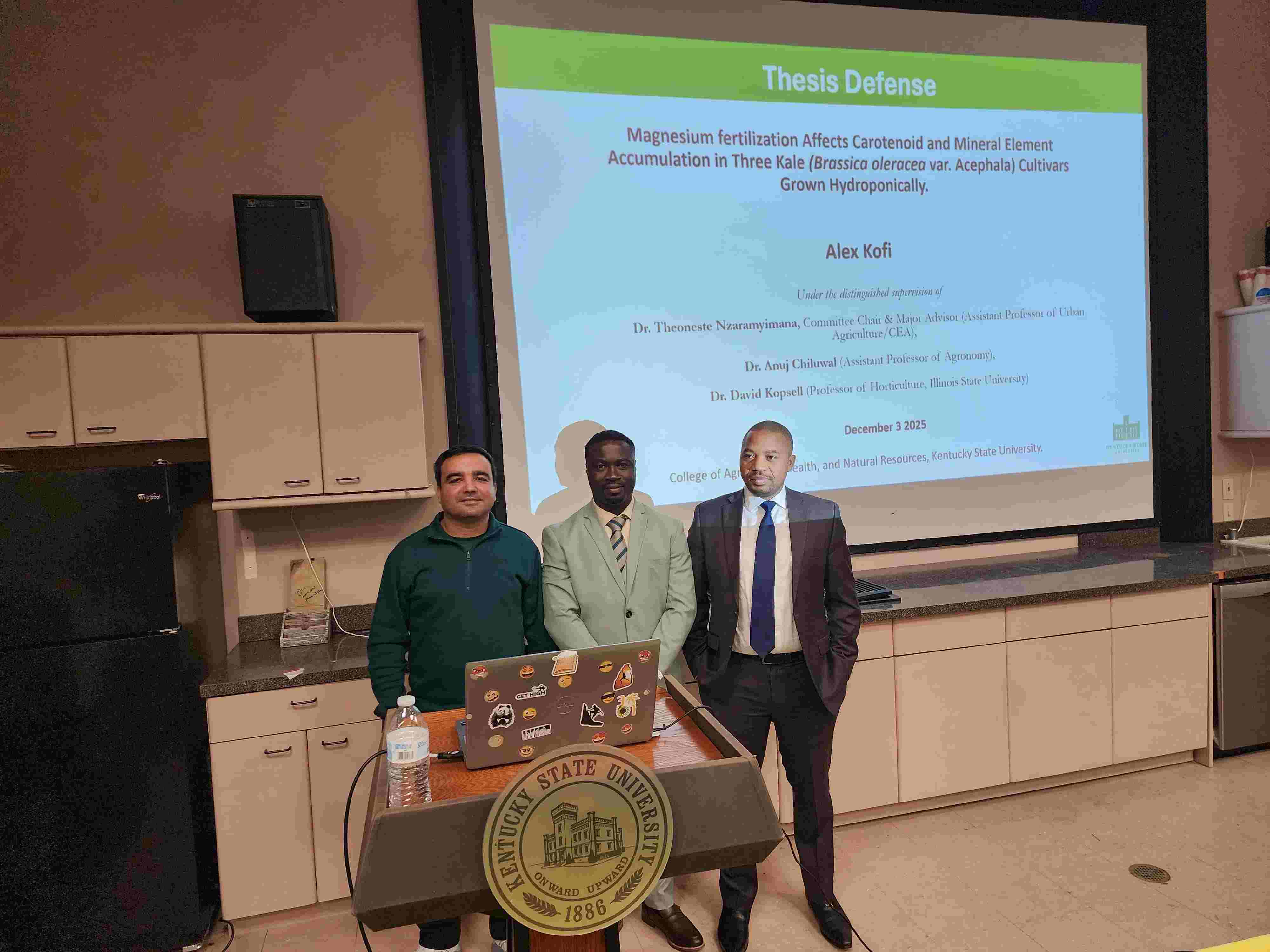
Alex Kofi, a distinguished member of the Urban Agriculture Team, has recently graduated with his master's degree in December, 2025 in environmental studies from Kentucky State University. His research, entitled: Magnesium fertilization Affects Carotenoid and Mineral Element Accumulation in Three Kale (Brassica oleracea var. Acephala) Cultivars Grown Hydroponically was successfully defended in December of 2025. His Thesis committee members consisted of Dr. Theoneste Nzaramyimana (Assistant Professor of Urban Agriculture/CEA), Dr. Anuj Chiluwal (Assistant Professor of Agronomy, Kentucky State University), and Dr. David Kopsell (Professor of Horticulture, Illinois State University). His study brings promising solutions to optimize kale cultivation with precision hydroponics in controlled environment agriculture. He hopes to pursue his doctorate in horticulture studies upon graduation.
The Urban Agriculture Team Participates in the Kentucky Academy of Science Meeting in Louisville, KY
The Urban Agriculture team attended the Kentucky Academy of Science on November 22nd-23rd, 2025, in Louisville, KY. Graduates and undergraduates presented oral and poster presentations to scientists throughout Kentucky. The Kentucky Academy of Science brings scientists together to share research, awards research grants to members, sends scientists out into the community to share their work, and recognizes outstanding science education and outreach. Our Urban Agriculture team showcased our research on the Effect of Selenium Fertilization on Phytonutrient Accumulation in Cress Varieties in Deep Water Hydroponics by Dr. Adeyeye. We also highlighted the Effect of Magnesium Fertilization on Carotenoid and Mineral Element Accumulation in Kale Cultivation by Alex Kofi. We presented the Effect of Different Plastic Mulch Colors on Growth, Yield, and Vitamin C Content of Habanero Peppers by Alex Kofi. Lastly, we presented on the Impact of Magnesium Fertilization on Phytonutrient Accumulation in NFT Hydroponically Grown Cress Varieties by Richard Kabanda. We are proud of our team members who showcased this outstanding research with our team: Cora Teets, Dr. Adeyeye, Dr. Theo, Richard Kabanda, Alex Kofi, Eric Murwanashyaka, Merci Uwimbabazi, Faustin Mukunzi, Oliver Musangwa, Sandrine Umutesi, Megrael Ngudia, Sephora Affoue, and Kwabena Sarpong. This is a great representation of collaboration and teamwork in our division.
Cora Teets Presents about Urban Agriculture Hydroponic Systems at the Showcase of HBCU in Louisville, KY
Urban Agriculture Members Present at the Professional Agricultural Workers Conference at Tuskegee University in Montgomery, Alabama
Enhancing Food Accessibility Through Urban Agriculture: A Student-Led Research Project at Kentucky State University:
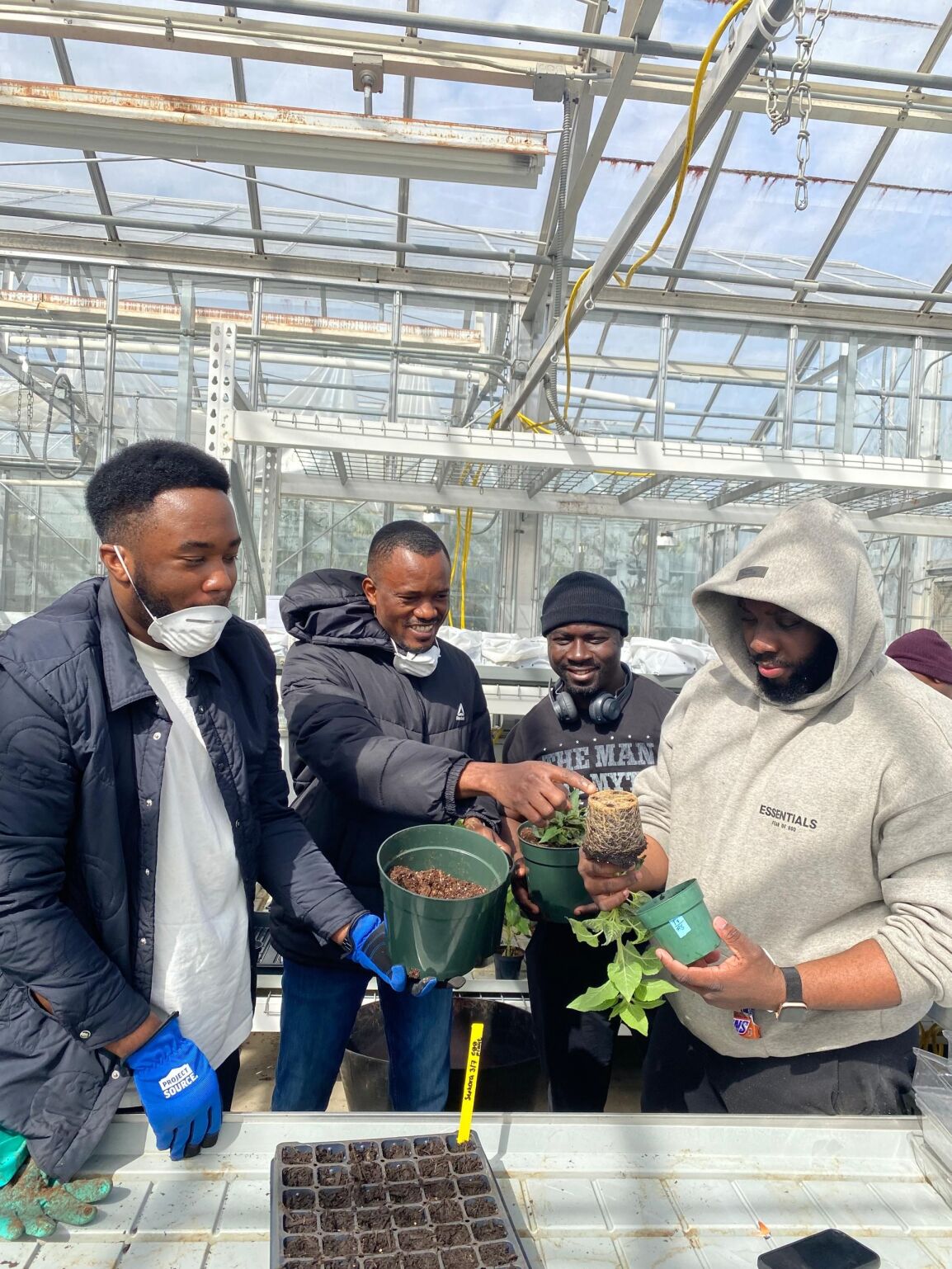
Under the direction of Dr. Nzaramyimana Theoneste, a group of four graduate students and three undergraduate students at Kentucky State University conducted research on urban farming. Urban agriculture focuses on generating fresh produce and making it accessible to areas that lack access to it. This research took place at the Dr. Harold R. Benson Research Farm and The Kentucky State University West Farm. Throughout the duration of three months, research associates seeded, transplanted, grew, and harvested 15 different species of fruits and vegetables.
Research associates began by tilling the land and implementing plastic mulching to protect crops from weeds and pests. Plastic mulching involves laying plastic sheeting over soil to suppress weeds, conserve moisture, and regulate soil temperature. A drip irrigation system was also implemented. Seedlings were first grown in a greenhouse because it offered several advantages including the ability to regulate temperature, humidity, and light; reducing the risk of transplant shock; and producing more resilient and adaptable plants. After transplanting the plants from the greenhouse, they easily adapted to their new environment and produced high yields of fresh produce in just a few months. Yellow summer squash, zucchini, and pickling cucumbers produced the highest yields.
During the project, research associates recognized the need to adjust their harvesting methods to ensure the quality of their produce. For example, for vegetables such as squash and zucchini, it was found it was best to harvest when they had reached 6-8 inches long. If harvested too late, they become full of water, lack flavor, and are at a higher risk of rotting and spreading fungus. During the project, research associates also battled, Phytophthora blight, which is a disease caused by the fungus-like organism Phytophthora capsica, also known as water mold. Although this disease can be caused by a number of factors, it was concluded that the crops developed this from overwatering.
Land management was another major challenge due to the overgrowth of weeds and the watermelon plants. Frequent weeding was needed to ensure crops were not losing resources. The watermelon plants also threatened the collard plants and zucchini crops due to overgrowth. Pruning and/or a use of a trellis to control the watermelon plants is the proposed solution for this.
Overall, the project produced 7,127 pounds of crops that students donated to local community shelters, students, staff, and faculty. Adjustments to management practices of crop land will be encouraged for future research.
Learn More Below:
https://www.kysu.edu/news/2024/12/urban-ag-project-ksu.php
Kentucky State University Secures $380,000 in USDA Grants for Pioneering Controlled Environment Agriculture Research:
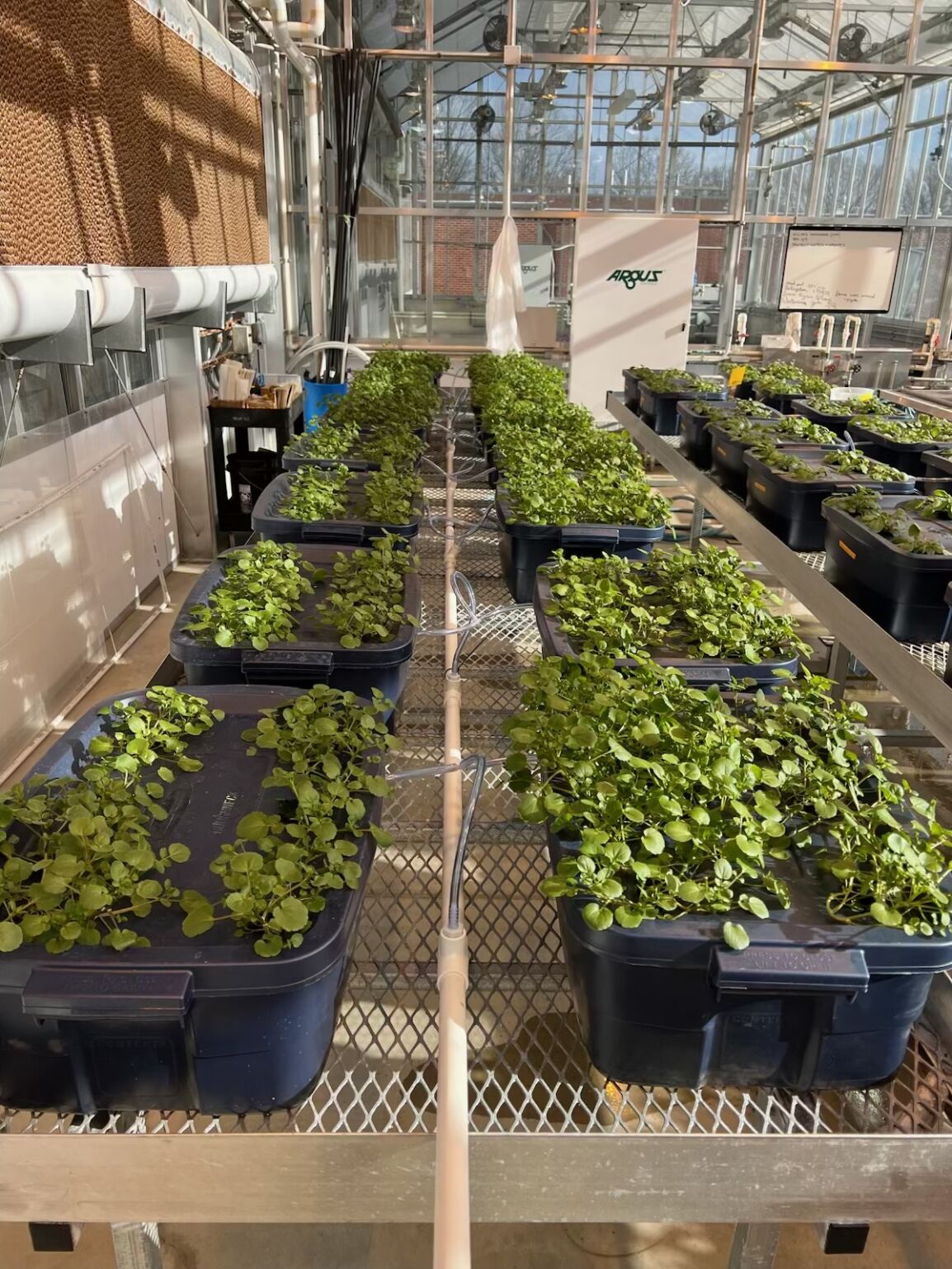
Learn More:
KSU and DSU Partner with Nigerian Universities to Advance Food Security and Research Collaboration in West Africa:
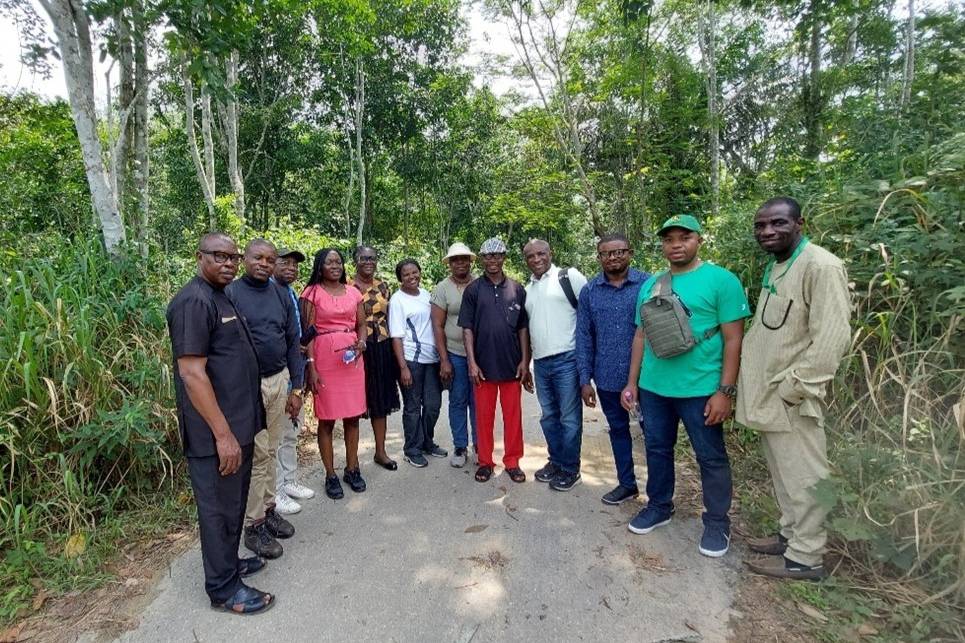
Kentucky State University (KSU) was awarded $250,000 and $130,000 in grants for a total of $380,000 by the US Department for Agriculture’s (USDA) Agricultural Research Service to conduct urban agriculture research with a focus on controlled environment agriculture. The projects titled, “Screening Tomatoes and Swiss Chard Varieties that are Suitable for Controlled Environment Agriculture” and “Effect of Light and Nutrients Application on Phytonutrients Accumulations Among Two Varieties of Watercress,” will be led by Dr. Theoneste Nzaramyimana, Assistant Professor for Urban Agriculture and Controlled Environment Agriculture at KSU.
Controlled Environment Agriculture is a method of farming that relies on technology-based approaches to control aspects of farming such as lighting, water and water. This innovative method can minimize risk of pests and disease while also supporting the best growing conditions for crops. The method is of special interest in urban agriculture research which seeks to maximize food production with limited space and resources, hence the significance of Dr. Nzaramyimana’s research.
“Coming 50 years from now, we might run out of land, so we really need to be using greenhouses to produce food and support growing populations especially. [Some people] will want to produce. Where are they going to produce with how much the land is costing now? So, if you want to start [growing], it’s hard if you want to buy land right now. [With controlled environment agriculture] somebody can start with a small greenhouse in their backyard and be able to produce and sell to the local community and make money by using lights, nutrients, and a small area. That’s why I see controlled environment is the way to go,” said Dr. Nzaramyimana.
Research will be conducted in Wooster, OH; Toledo, OH; and Charleston, SC. Additionally, the grants will enable four KSU graduate students to be supported as research associates, paying for students’ tuition, fees, publication, and research costs during their respective projects.
Learn More Below:
https://www.kysu.edu/news/2024/12/ksu-strengthens-relations-in-nigeria.php
Illinois State University News Feature: Growing Hope: Alum Cultivates Purpose from Life Marred by Tragedy:
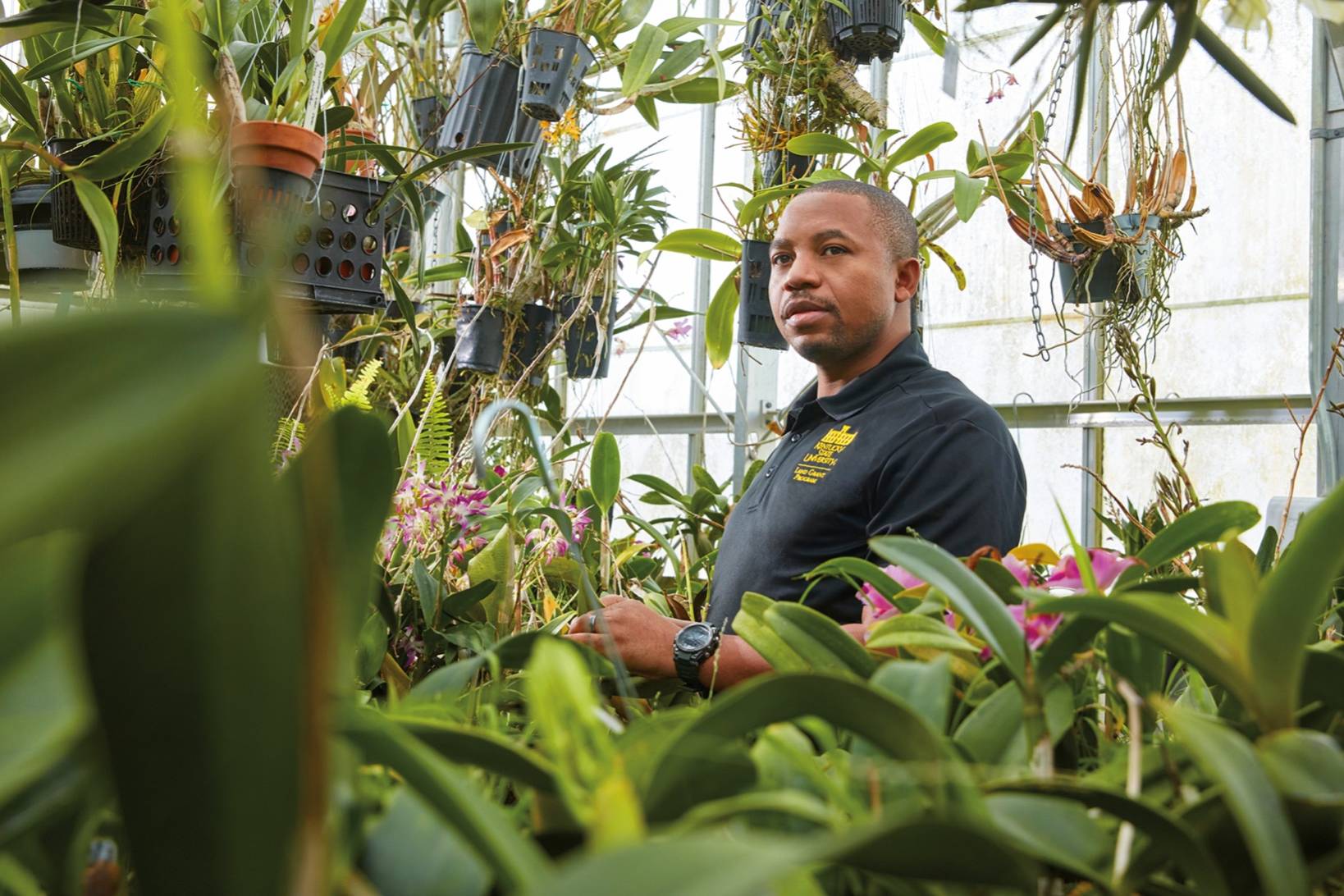
From the darkest depths of death and despair, Dr. Theoneste “Theo” Nzaramyimana, M.S. ’17, discovered life in a garden.
As a child, Nzaramyimana and his family fled their home to escape genocide during the Rwandan Civil War. Hundreds of thousands of people perished.
“I escaped among those who were running away for their lives,” Nzaramyimana said. “We were fleeing to any place we could find. Sometimes entire families were separated.”
Nzaramyimana moved to Zimbabwe where, as a teenager, he met young refugees whose mental health was suffering from traumatic experiences in the war. He wanted to do something for them.
“One way to help was to keep them busy,” Nzaramyimana said. “I ended up engaging with them, helping them grow some vegetables.”
Raised on a farm in Rwanda, Nzaramyimana constructed a roughly 10-by-10-foot garden plot in a Zimbabwean refugee camp. He helped a group of kids there learn how to grow amaranth (pig weed), kale, cabbage, tomatoes, green beans, and sugar beans.
They kept their plants well-watered in the hot and dry climate, fertilized them with cow manure, and protected the plot with thorns to discourage elephants, antelopes, and deer from eating their freshly grown produce. The vegetables were a necessary addition to the refugees’ diet of cornmeal and rice provided by the World Food Program.
“We were donating most of the produce, and we ate the extra,” Nzaramyimana said. “For me, it was about engaging with the kids and helping those vulnerable and elderly people who could not do the work.”
“When you’re growing food with kids or students, you’re cultivating communication, self-esteem, motivation, time management, and teamwork.”
—Dr. Theoneste “Theo” Nzaramyimana, M.S. ’17
In his small, educational garden, Nzaramyimana made a profound discovery. Growing food created an impact far greater than the vegetables’ nutritional value.
“It’s not just about harvesting what you eat,” he said. “When you’re growing food with kids or students, you’re cultivating communication, self-esteem, motivation, time management, and teamwork.
“When a kid sees a tomato plant growing and they pick the tomato and they taste the tomato, that is really powerful because they have ownership. They saw it growing and they say, ‘I did this! I’m the one who grew this!’”
While managing the garden, Nzaramyimana taught himself high school-level curriculum. He then applied and was admitted to Africa University in Zimbabwe, where he received a scholarship to study horticulture. As a college student, he volunteered at a nearby youth center.
“I was there to teach them farming skills,” Nzaramyimana said. “A few kids who had been living on the streets were able to start raising chickens and growing vegetables to sell in order to go back to school. It was a great thing. With that, I knew there was nothing I wanted to do more than agriculture.”
Nzaramyimana applied for a study-abroad internship in the U.S. By chance, he was placed with Todd ’94 and Joanna Wright, who manage a 6,000-acre farm in rural Bradford, 35 miles north of Peoria
A graduate of Illinois State University’s Department of Agriculture, Todd took Nzaramyimana on a visit to Illinois State where they met several faculty members, including Dr. David Kopsell, a professor of horticulture.
“The Wrights recognized how intelligent Theo was and just what a fantastic person he is,” Kopsell said. “I told them, ‘If you can get him here, we’ll have a project for him.’ And it worked out.”
A year later, Nzaramyimana began working toward a master’s in agriculture science at Illinois State. Kopsell was his advisor.
“Dr. Kopsell was instrumental,” Nzaramyimana said. “My writing was not that great. My first paper was extremely red (with Kopsell’s ink) when he reviewed my proposal. I was like, ‘I think I need to quit and go back because this isn’t for me.’ And he said, ‘Don’t worry. You are here to learn.’ He kept revising my drafts, and I built up a topic and started really learning.”
Nzaramyimana connected with everyone in the department and willingly shared his personal story. While excelling in graduate school, Nzaramyimana also volunteered at the Unity Community Center in Normal where he helped underserved kids with their homework and planted a community garden.
“Theo is probably one of the most genuine individuals I’ve ever met,” Kopsell said. “You can tell that tragedy has kind of shaped who he is. I think it’s caused him to view life as being very special, and he shares his talents with as many people as he can.”
For his graduate thesis, Nzaramyimana hydroponically (using a water-based nutrient solution rather than soil) grew edamame in a greenhouse and manipulated the sulfur fertility to alter the vegetable’s bitterness.
“He did really well with that project, and I told him he should go for a Ph.D. because he had that much talent and was that intelligent,” Kopsell said.
After graduating from Illinois State in 2017, Nzaramyimana pursued a doctorate at Purdue University. By then, he was married to a woman he met in Zimbabwe, and the couple had a son.
“(Working toward a Ph.D.) was extremely intense,” Nzaramyimana said. “But I give credit to my wife who always says, ‘Whatever’s in your heart, go for it. I’m there to back you up.’”
For his dissertation, Nzaramyimana co-initiated a program in Indianapolis where he worked with inner-city youth to develop urban agricultural skills and entrepreneurship opportunities.
He graduated from Purdue in 2020 and became a faculty lecturer. In January 2023, he started his current role as an assistant professor for urban agriculture at Kentucky State University, a historically Black university (HBCU), in Frankfort, Kentucky.
Nzaramyimana said urban ag provides an effective solution for food inequity in underserved communities.
“A lot of community gardens and youth programs are born because of activists’ visions,” he said. “They want equal opportunity for fresh produce in different parts of cities.”
This can be accomplished through urban ag, which includes rooftop farming, vertical farming, greenhouses, and Freight Farms—hydroponic farming systems in retrofitted shipping containers.
“When students interested in ag see a greenhouse or a Freight Farm, they see it’s a great opportunity because they can do it too,” Nzaramyimana said. “It’s really expensive to purchase farmland. But they can own a small greenhouse in a backyard. So, we’re starting to see kids from the city joining urban ag programs.”
Kopsell is in the process of co-developing a cross-disciplinary Sustainable Urban Agriculture class at Illinois State funded by a U.S. Department of Agriculture grant. Nzaramyimana is on the course advisory panel. Plans to install a Freight Farm on Illinois State’s campus are underway.
“Getting this life—it’s just a miracle.”
—Dr. Theoneste “Theo” Nzaramyimana, M.S. ’17
Not only can urban ag improve food access, but growers can produce culturally relevant food for their customers, according to Nzaramyimana. He focused on serving immigrant populations during a class he started at Purdue called Ethnic Crops.
“(Immigrant populations) need the food that they used to eat back home,” Nzaramyimana said. “They need that traditional, culturally relevant food.”
Nzaramyimana understands the power of food firsthand. He and his wife would drive 90 minutes from Purdue’s campus to Indianapolis to buy African eggplants.
“It’s not just food. It takes you back home. It connects you to your home country,” he said.
Nzaramyimana predicts exponential growth in urban ag during the coming years, and he will be at the forefront as one of just a handful of professors in the country currently focused on the specialized area of horticulture.
Now the father of three young boys who enjoy helping their dad grow tomatoes in backyard containers, Nzaramyimana is “thankful” for how he’s grown personally—from surviving a tragic childhood to becoming an impactful educator and mentor dedicated to helping his students blossom.
“Many people lost their lives in the war. There are many people who never got what I got,” Nzaramyimana said. “Getting this life—it’s just a miracle.”
At Illinois State, Nzaramyimana was mentored by Drs. David Kopsell and Aslihan Spaulding.
Learn more:
HBCU-Buzz News Feature: KSU Students Cultivate Over 7,000 Pounds of Produce in Urban Agriculture Project to Tackle Food Insecurity:
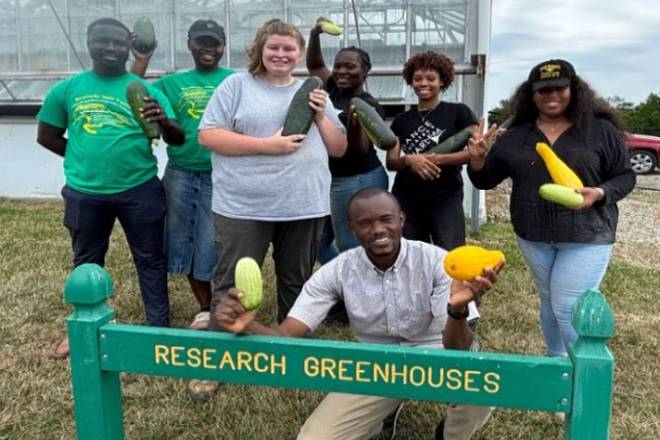
Learn more:
https://hbcubuzz.com/103521/hbcu-students-harvest-success-through-urban-agriculture-project/
COLLABORATION UPDATE: Kentucky State University Urban Agriculture Team Travels to USDA Vegetable Laboratory in Charleston, South Carolina
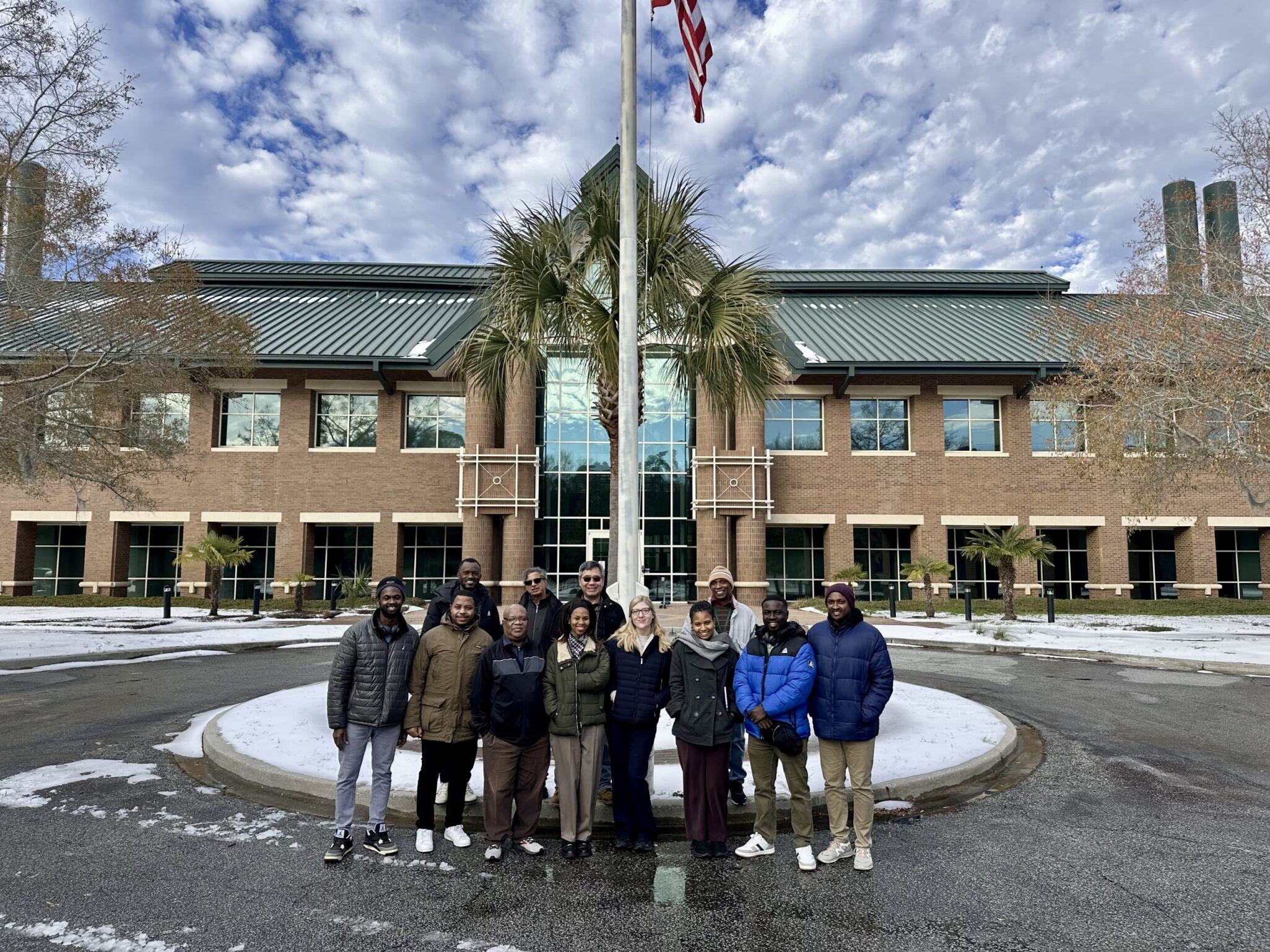
Kentucky State University Urban Agriculture Team travels to the United States USDA Vegetable Laboratory in Charleston, South Carolina. Urban Agriculture graduate students and team leaders had the opportunity to engage with USDA research scientists and learn about the controlled environment agriculture initiatives at the U. S. Vegetable Laboratory. Dr. Theoneste Nzaramyima has established a collaborative grant with the USDA to provide research opportunities for Kentucky State University Graduate students where they will have the opportunity to participate in internships with USDA researchers. The lab solves national problems in the production and protection of vegetable crops. This collaboration will allow for more funding and research possibilities in the future. The Urban agriculture team is excited about working on future research publications and projects over the next growing season.
|
Learn More: TRAVEL UPDATE: Urban Agriculture Team Tours Amplified Ag facility in Charleston, SC
Urban Agriculture Graduate Student, Dr. Adeyeye Adekunle, was featured in North American Colleges and Teachers of Agriculture News & Press Article. Quotes from the news feature: -"Our first winter experience in the United States was truly magical. My wife, our little daughter, and I embraced the snow joyfully, making snowballs, building a snowman, and creating memories that fulfilled a long-awaited bucket list dream. This moment reflects our love for new adventures and family togetherness." -If someone asked about NACTA, what 5 words would you use to describe it?: "Collaborative, innovative, supportive, educational, transformative."
Learn more: https://nactateachers.org/news/692742/
TUSKEGEE INTERNSHIP AWARDED: Urban Agriculture Research Assistant, Megreal Ngudia, Selected to Participate in the 1890 Distributed Research and Extension Experience |
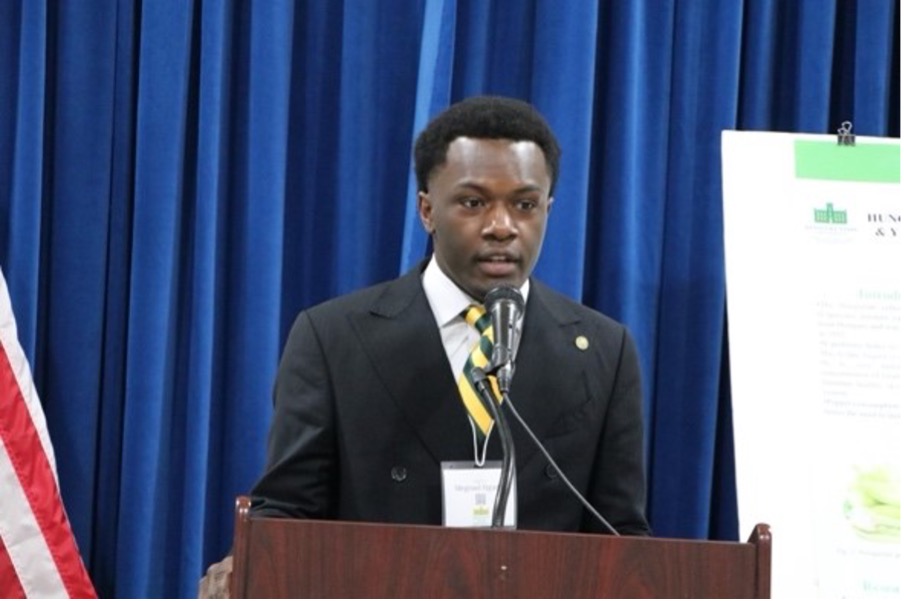
An Urban Agriculture/ Controlled Environment Agriculture Undergrad Research Assistant, Megrael Ngudia, has been selected to participate in the 1890 Distributed Research and Extension Experience for Undergraduates (D-REEU) summer internship. This internship will take place at Tuskegee University College of Agriculture, Environment, and Nutrition Sciences. This will provide him with hands-on research experience at Tuskegee University's Organic Farm under the advisory of Dr. Kpomblekou.
Learn More:
Megrael has been an outstanding student and research assistant in the Urban Ag lab and has gained relevant experience and skills by working as a lab and farm assistant for the past year under the direction of Dr. Nzaramyimana and Cora Teets. As a freshman undergraduate student, he has gone above and beyond to help the team excel and accomplish missions.
Megrael also showcased his research on Hungarian yellow wax sweet pepper's response to different production systems at the Posters at the Capital event in Frankfort, Kentucky this March. He was selected as the only Kentucky State University student to compete in the oral presentation in front of Kentucky legislators. These combined experiences inspired him to apply to the Tuskegee University summer internship and helped him demonstrate compatible alignment with the program’s goals and objectives.
Learn More:
https://digitalcommons.murraystate.edu/postersatthecapitol/2025/KSU/7/
STATE JOURNAL FEATURE: Kentucky State Students Discover the Future of Farming Isn't What they Expected
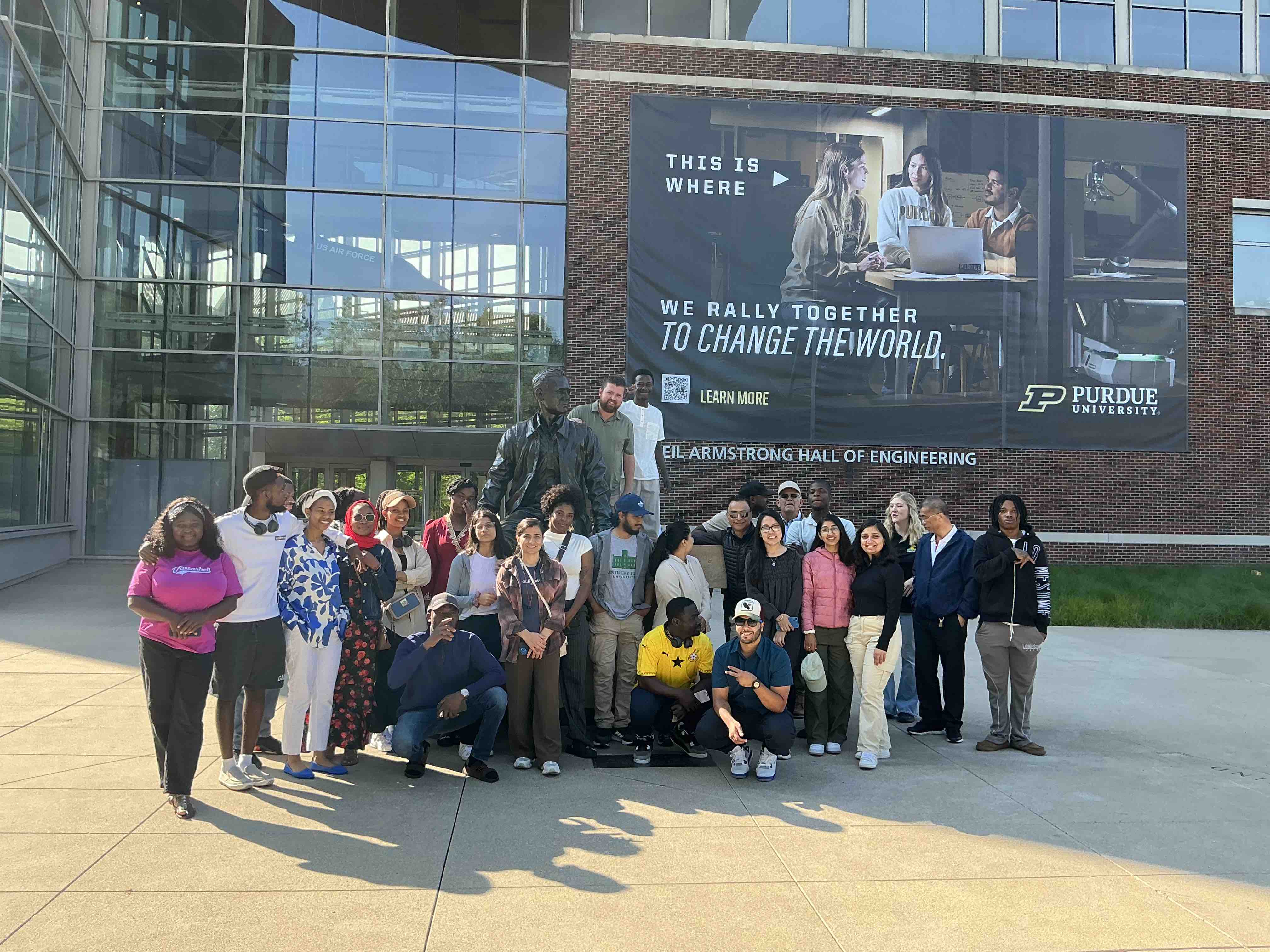
KYSU Urban AG and other KYSU Students Embark on Educational Tour to Purdue University. A group of undergraduate and graduate students from the College of Agriculture, Health, and Natural Resources of Kentucky State University recently visited one of the top research institutions, Purdue University, as part of a four-day educational tour from May 27 to 30 aimed at enhancing academic exposure and practical hands-on experience.
The tour included visits to Controlled Environment Facilities for Horticulture and Agronomy, Food Science Labs, the Phenotyping Center, Agricultural and Biological Engineering, Beck’s Ag Center, Agronomy Center, Horticulture Research Farms, and Animal Science Farms. During the visit, the students observed the modern innovative research advancing agricultural activities and actively interacted with Purdue faculty and researchers.
A total of twenty-five students, thirteen faculty, and staff members from KSU participated in this tour. The objective of this tour was to expose students to different learning environments so that they could gain deeper insights into innovations in modern agriculture.
''I was overwhelmed with information and visuals of machines and things that I didn't understand were even created,” said junior Psychology and Social Work major Ms. Shaneice Brown. Another participating fresman, Agriculture, Food and Environment major Mr. Megrael Ngudia, stated, "It was an eye-opening experience that highlighted the importance of research and what can be done when a large number of resources are available for research."
Further, an undergraduate agribusiness student, Dshia Turner, explained, "A fun fact about the farming industry is they have such a good system, from what I have seen, that their combination with the technology and engineering industries has resulted in a variety of inventions to help and understand the wildlife or the food production, consequently reducing the amount of labor that is required on the farm."
“I was especially impressed by the scale of investment and the depth of innovation in agricultural sciences at Purdue. This experience has equipped me with new ideas, knowledge, and motivation that I’m looking forward to applying in my academic and research,’’ said Sudha Bhandari, a graduate student.
''I was able to get access to and connect with relevant professors in my research interest, and they gave me insights into what to do next for my future academic career,'' shared Prabina Bhujel, a participating student.
The tour created a lasting impact on students at various levels, who found the experience valuable in separate ways.
In addition to the visit, the tour provided practical takeaways for students in shaping their understandings of agricultural innovation.
Eric Murwanashyaka, a graduate student stated, "The trip to Purdue renewed my belief in the importance of integrating digital technology into agriculture to enhance crop productivity and ensure better harvests."
''The experience was not only insightful but truly transformative. From advanced laboratories to expansive research farms and high-tech facilities, every aspect of their agricultural program reflects a dedication to solving real-world problems,'' stated Mona Bhandari, a graduate student.
The KSU faculty and staff, including Drs. Buddhi R. Gyawali, Maheteme Gebremedhin, Jyotica Batra, Theoneste Nzaramyimana, Liang Yu, and Ms. Cora Teets, met with Dr. Bernie Engel, Dean of Agriculture, and Dr. Ron Turco, Associate Dean of Agricultural Research and Graduate Education, to discuss future collaboration. Dr. Gyawali, KSU professor of Geospatial Technology and Environment stated that “Building on the momentum of this visit, KSU further plans to collaborate with Purdue University, including student and faculty summer internships, use of Purdue's research labs and fields for KSU graduate and faculty research, and collaborative grant development for extending Purdue's research to Eastern Kentucky in studying impacts of surface coal mines, landscape restoration, and economic development.”.
The trip was funded by a USDA/AFRI grant- Enhancing Productivity, Diversification, and Sustainability by Infusing Geospatial Technology in Small and Medium-Sized Farms, (Award # 2019-68006-29330 (Project Director, Dr. Buddhi R. Gyawali).
Learn more:
https://www.kysu.edu/news/2025/06/ksu-future-of-farming.php
|
|
|
Urban Ag Summer Interns Work Hard at KYSU Student Run Farm

Summer break didn’t stop these student leaders from digging into hands-on learning!
![]()
![]() Alecia Daniels, Jaiya McCargo, and Jade McCargo stayed on campus to help tend the
student-run farm under the guidance of Dr. Theoneste Nzaramyimana.
Alecia Daniels, Jaiya McCargo, and Jade McCargo stayed on campus to help tend the
student-run farm under the guidance of Dr. Theoneste Nzaramyimana.
From harvesting cucumbers and cherry tomatoes to sharing fresh produce with the campus
community—they're growing more than food, they're growing impact.
#ThorobredsLeadingForImpact
See FaceBook and LinkedIn Posts Here
KSU News: Kentucky State University Achieves National Recognition with Prestigious
Award and Breakthrough Research at Leading Horticulture Conference
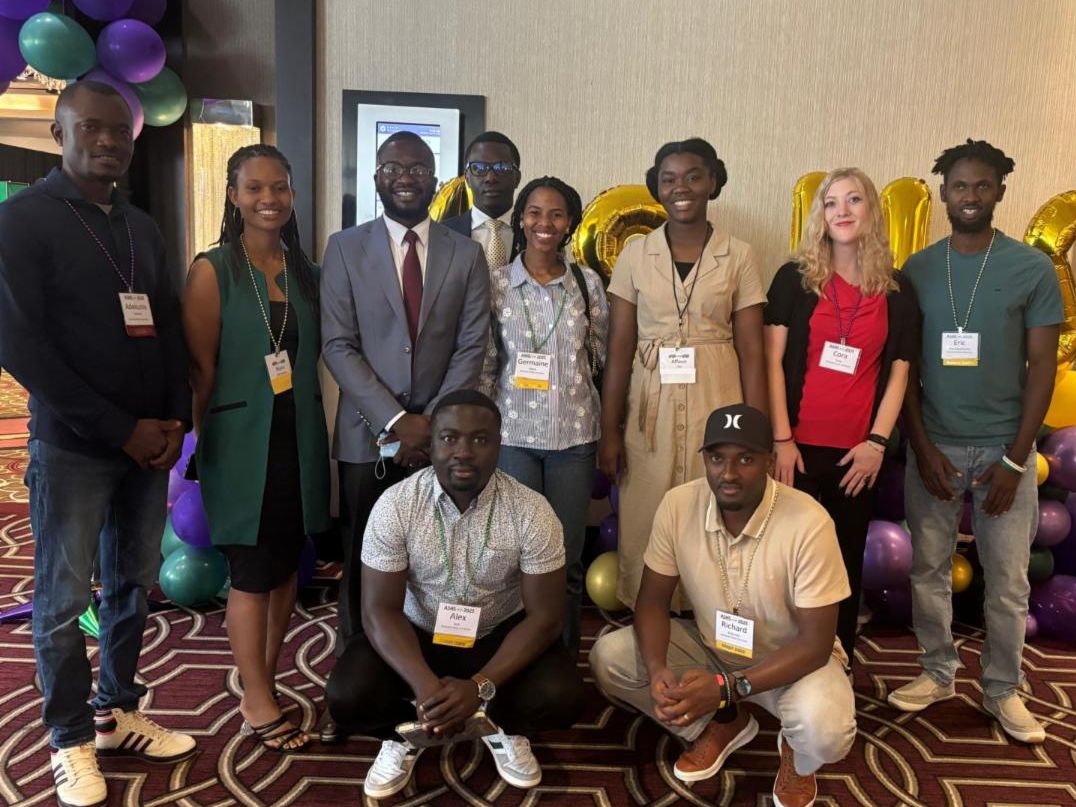
Kentucky State University demonstrated its national leadership in agricultural science at the 122nd Annual Conference of the American Society for Horticultural Science (ASHS), where faculty and students presented groundbreaking research in pawpaw domestication and urban agriculture. The University's impact was further solidified when a leading researcher received the society's highest honor.
The premier conference, attended by over 1,500 horticultural experts in New Orleans from July 28 to Aug. 1, showcased Kentucky State's multifaceted contributions to the field.
The conference's highlight was Dr. Kirk W. Pomper's induction as a Fellow of the American Society for Horticultural Science. This lifetime achievement award represents one of horticulture's most prestigious honors, reserved for scientists whose exceptional contributions have shaped the profession. Dr. Pomper's selection to the 62nd class of Fellows recognizes his pioneering work and leadership in agricultural research.
Kentucky State University operates the world's only full-time pawpaw research program, and its team presented comprehensive studies aimed at transforming the pawpaw (Asimina triloba) from regional novelty to commercial crop.
The KSU Pawpaw Research Program team—including Dr. Pomper, Research and Extension Associate Sheri Crabtree, Horticulture Research Associate Jeremy Lowe, and graduate students Nabin Adhikari, Subas ThapaMagar, and Kshitij Shahi—addressed the fruit's key commercial challenges:
· Genetic Verification: Using DNA fingerprinting through Simple Sequence Repeat (SSR) markers to verify parentage of new cultivars, ensuring reliable breeding programs and intended traits.
· Pollination Solutions: Research on fly and beetle pollinators (pawpaws aren't bee-pollinated) provides growers essential knowledge to improve fruit set and maximize yields.
· Extended Shelf-Life: Modified atmospheric storage research addresses the pawpaw's short shelf-life barrier, enabling wider market distribution.
· Superior Cultivars: Data on promising new selections from KSU's breeding program, including yield, fruit weight, seed-to-pulp ratio, and sugar content, represents years of development work.
Graduate students also participated in the competitive Scholars Ignite Competition, which challenges researchers to present their work's impact in three minutes with a single slide.
"Presenting at ASHS provides incredible feedback from field experts and teaches you to communicate research impact," said graduate student Subas ThapaMagar. "It makes you a better scientist."
While Kentucky State University's pawpaw research focuses on maximizing the potential of a native fruit in traditional agricultural settings, the University is simultaneously pioneering the future of indoor agriculture. The KSU Urban and Controlled Environment Agriculture Team, led by Dr. Theoneste Nzaramyimana, was the conference's only group presenting watercress and upland cress research—a distinction that underscores the University's leadership in exploring underutilized crops with exceptional nutritional potential.
The team's comprehensive research program showcases Kentucky State's commitment to hands-on learning through close collaboration between faculty, researchers, and students. Seven team members presented their individual research projects at the conference: three graduate students, one undergraduate, and three research associates. This representation demonstrates how KSU integrates students at all levels into meaningful research experiences.
The presentations covered systematic investigations into bio-fortification strategies:
· Graduate students Richard Kabanda, Germiane Akeza, and Eric Murwananasyaka presented research on magnesium fertilization effects on phytonutrient accumulation, phenolic compound accumulation, and biomass in upland cress, respectively.
· Undergraduate researcher Megrael Ngudia contributed a study on selenium biofortification effects on beta carotene accumulation in watercress. While Sephora Yao Affoue contributed a study on magnesium fertilization effects on chlorophyll accumulation in upland cress.
· Research associates Cora Teets and Adekunle Adeyeye presented work on selenium's impact on the accumulation of carotenoid, glucosinolates, beta carotene, and phytonutrienl accumulation in watercress.
"Horticulture production is fundamental to food security," explained Dr. Nzaramyimana.
"Watercress ranks as the most nutrient-dense leafy green according to the CDC, and both watercress and upland cress contain high levels of glucosinolates—powerful compounds with anti-inflammatory and cancer-preventive benefits," he added. "By optimizing how these crops are grown in controlled environments through strategic supplementation with selenium and magnesium, we're creating a direct pathway from agricultural science to improved public health."
This research was supported by USDA Evans-Allen Research Grant (Project Number 7004987) and USDA Grants for Pioneering Controlled Environment Agriculture Research, conducted in collaboration with The Ohio State University Agricultural Research Service, with assistance from Dr. James Altland and Mrs. Leslie Morris.
Learn more below:
https://ashs.org/page/ASHSAnnualConference
|
|
|
|
|
|
|
|
|
|
|
|
|
|
|
|
|
Learn more here:
https://kentuckyagconnection.com/news/ksu-hosts-3rd-annual-ag-roundup-celebration-september-4-6
https://www.kysu.edu/news/2025/09/ag-roundup-day%202-recap-and-day-3-preview.php
Urban Ag Student, Germaine Akeza, Awarded 2025 Scholarship for Extension Personnel Recipient for Controlled Environment Agriculture Summit East
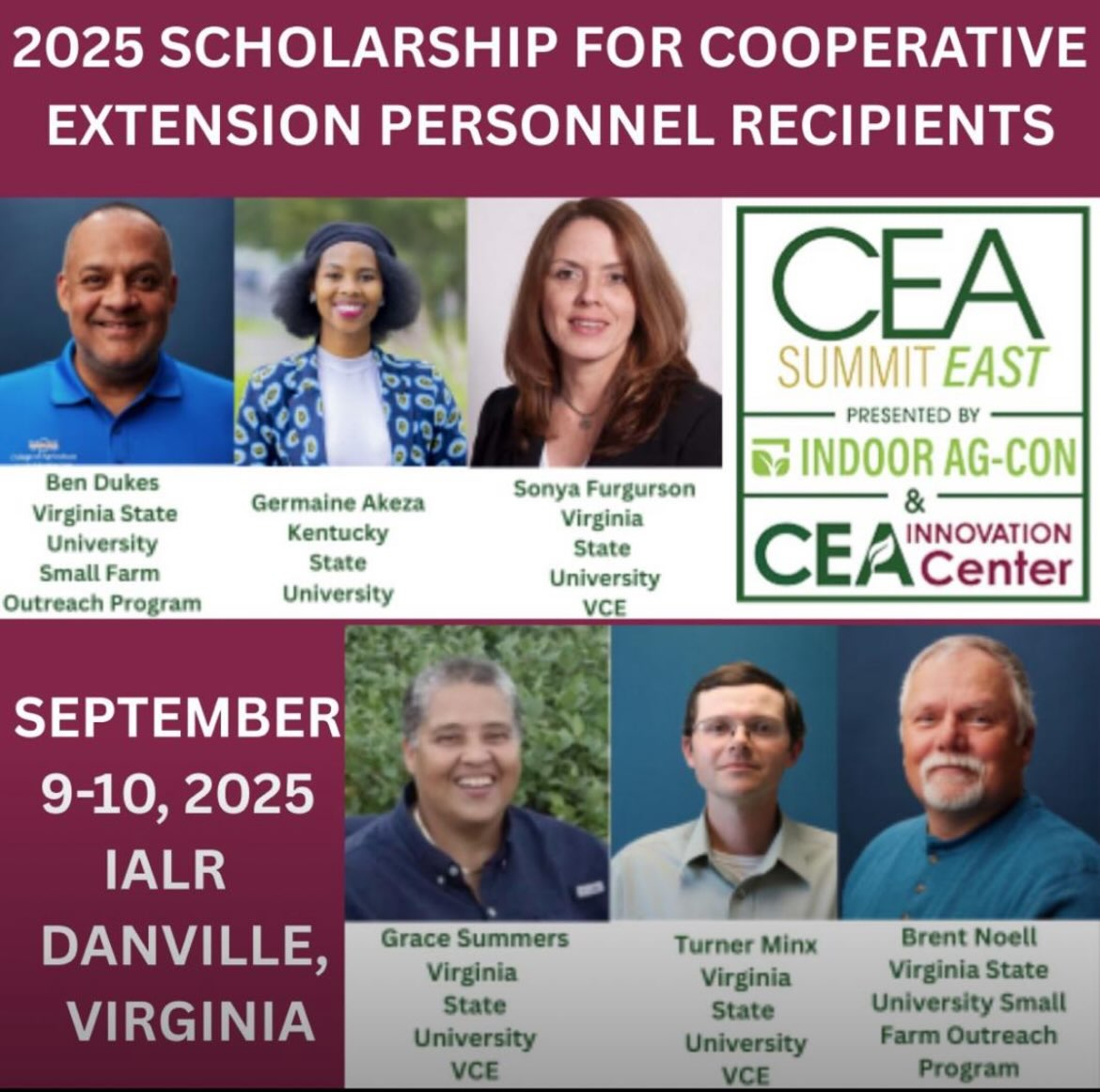
Urban Ag graduate student, Germaine Akeza, was awarded a travel scholarship to attend the CEA Summit East in Danville, Virginia from September 9th-10th. She was selected as an excellent extension personnel in the East United States. She was able to advocate for the Kentucky State University Urban and CEA Lab and provide extension materials in urban ag. This was a great oppurunity to learn more about CEA and extension missions.
Learn more here:
https://indoor.ag/cea-summit-east-2025/
What’s Been Happening in Our Urban Ag World…
Spring into Success! | Department Milestones Update
This Spring has been an exciting and productive season for our department! Our Master's students have successfully completed their proposal defenses — a major academic milestone, and we couldn’t be prouder of their dedication and perseverance.
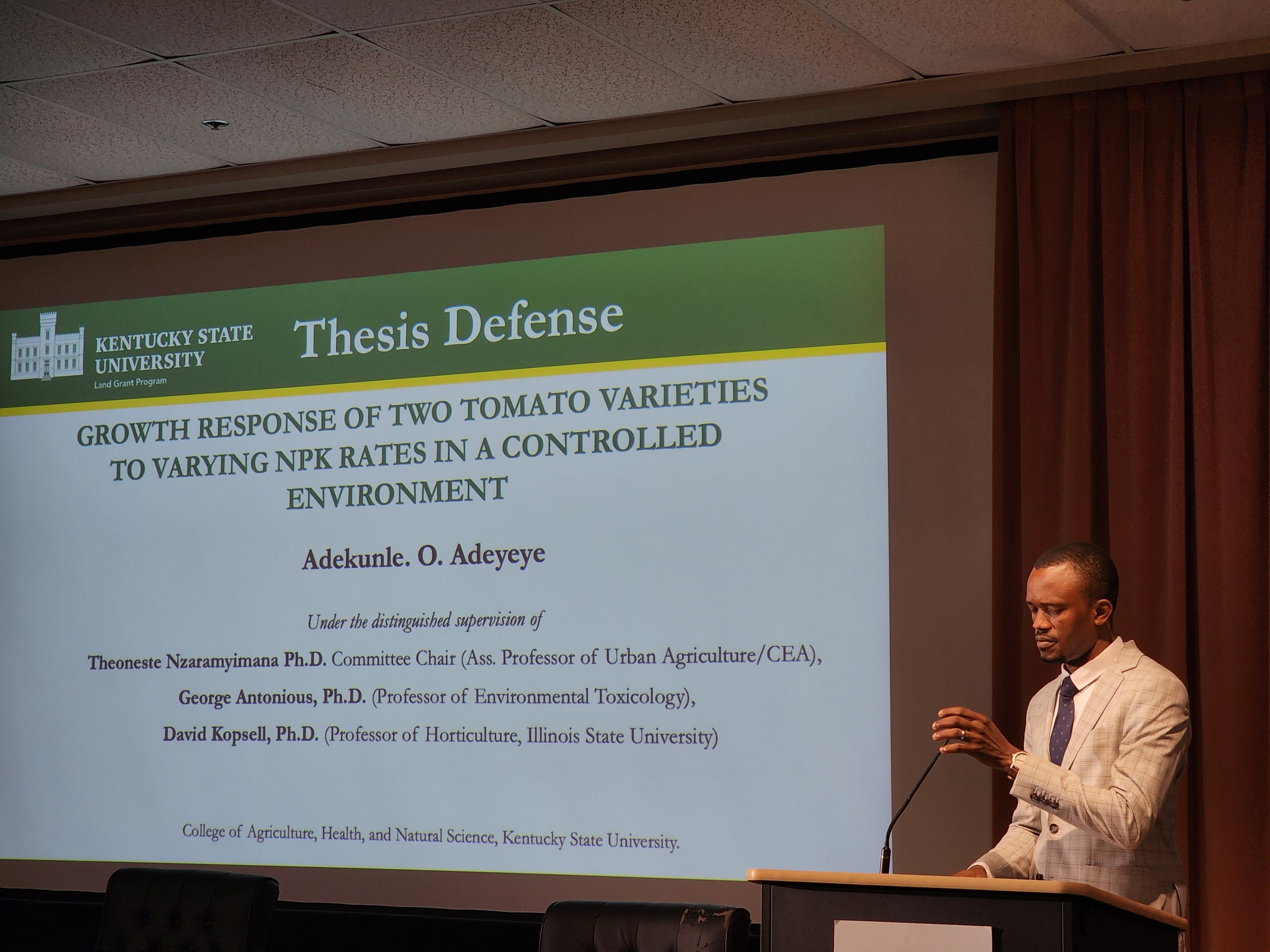
A special congratulations to Dr. Adeyeye Adekunle, who not only completed his thesis
defense but also passed his final exam defense with flying colors!
Meanwhile, our research continues to grow—literally! Dr. Hattie Hope Makumbe, is our newly appointed Post Doctoral Researcher in our department.
By integrating biochemistry techniques with urban farming systems, she is uniquely positioned to add value to the urban agricultural space.
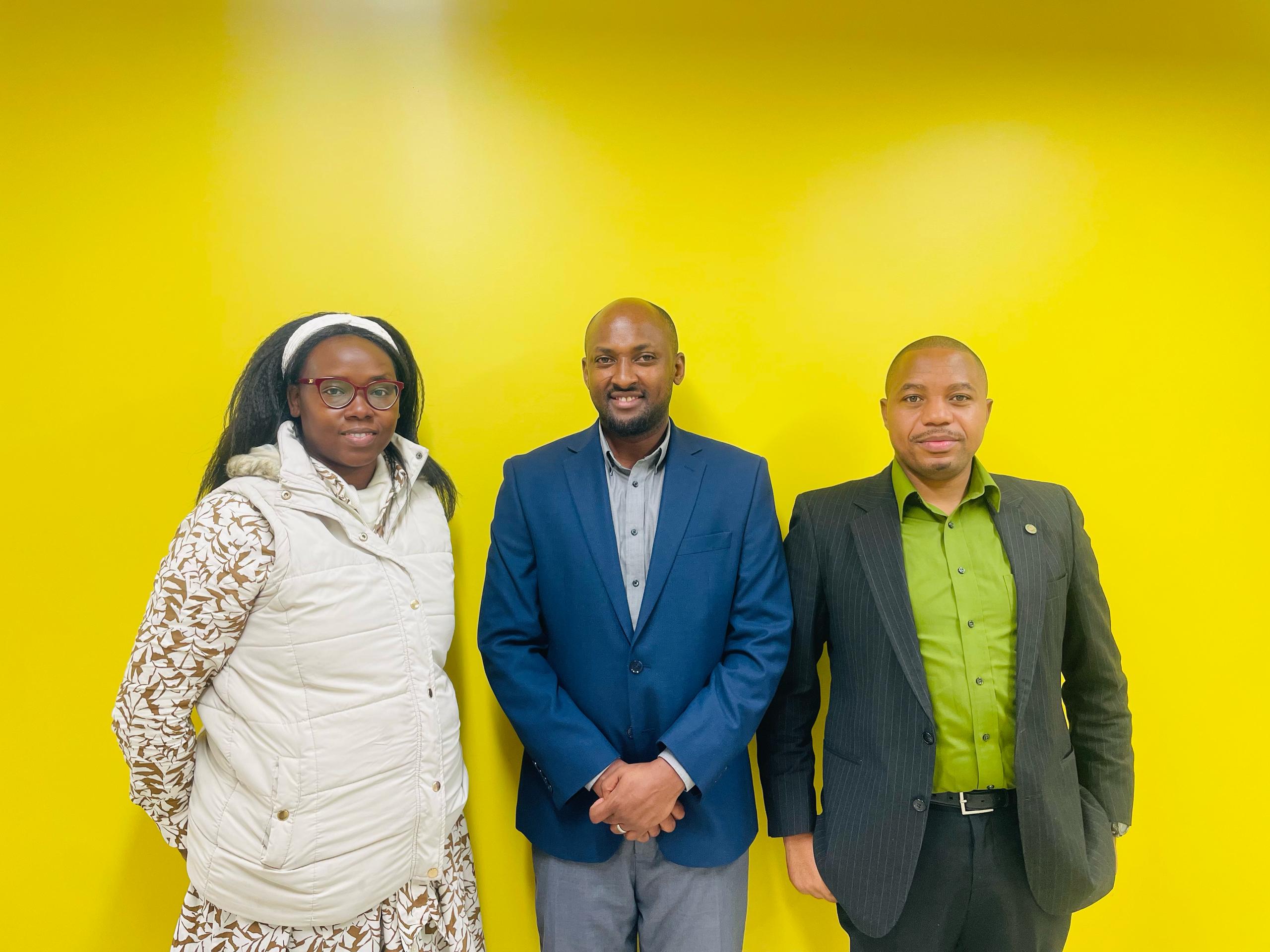
Richard Kabanda’s succcessfully defends his thesis project on watercress cultivation
and nutrient analysis has reached a key milestone: successful plant growth and now entering the nutrient
analysis phase.
This cross-institutional research is pushing boundaries in sustainable agriculture
and plant science. We are proud of the impact our students and researchers are making—regionally
and globally.
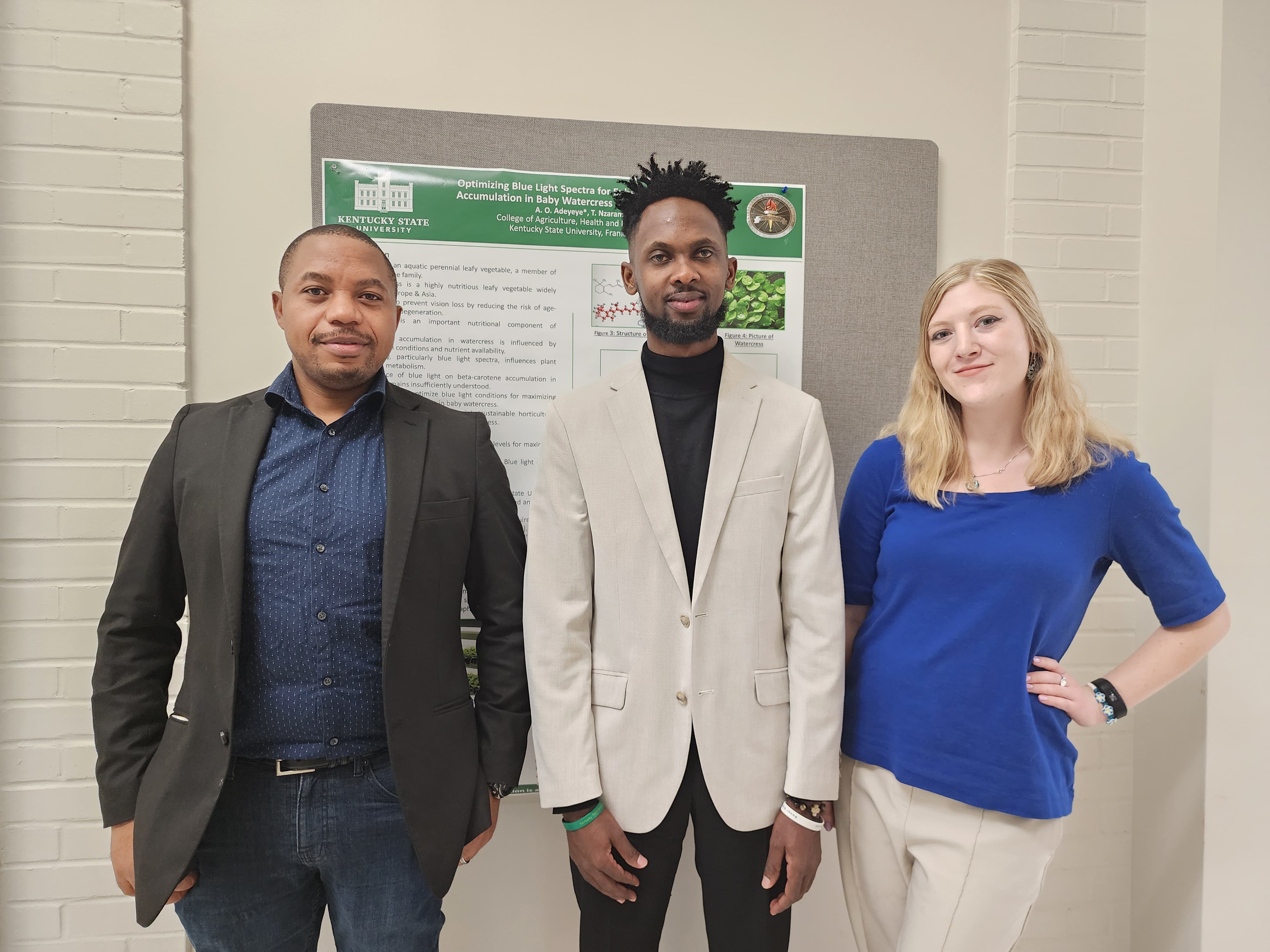
Eric Murwanashyaka sucessfully defends his thesis proposal on Evaluating the Effects of Blue Light Intensities on Beta-carotene Accumulation in Two Baby Cress Varieties.

MarieMerci Uwimbabazi sucessfully defends her thesis proposal on the Impact of Artificial LED Lights Spectra on Swiss Chard Growth, Yield, and Quality under Controlled Environment Agriculture
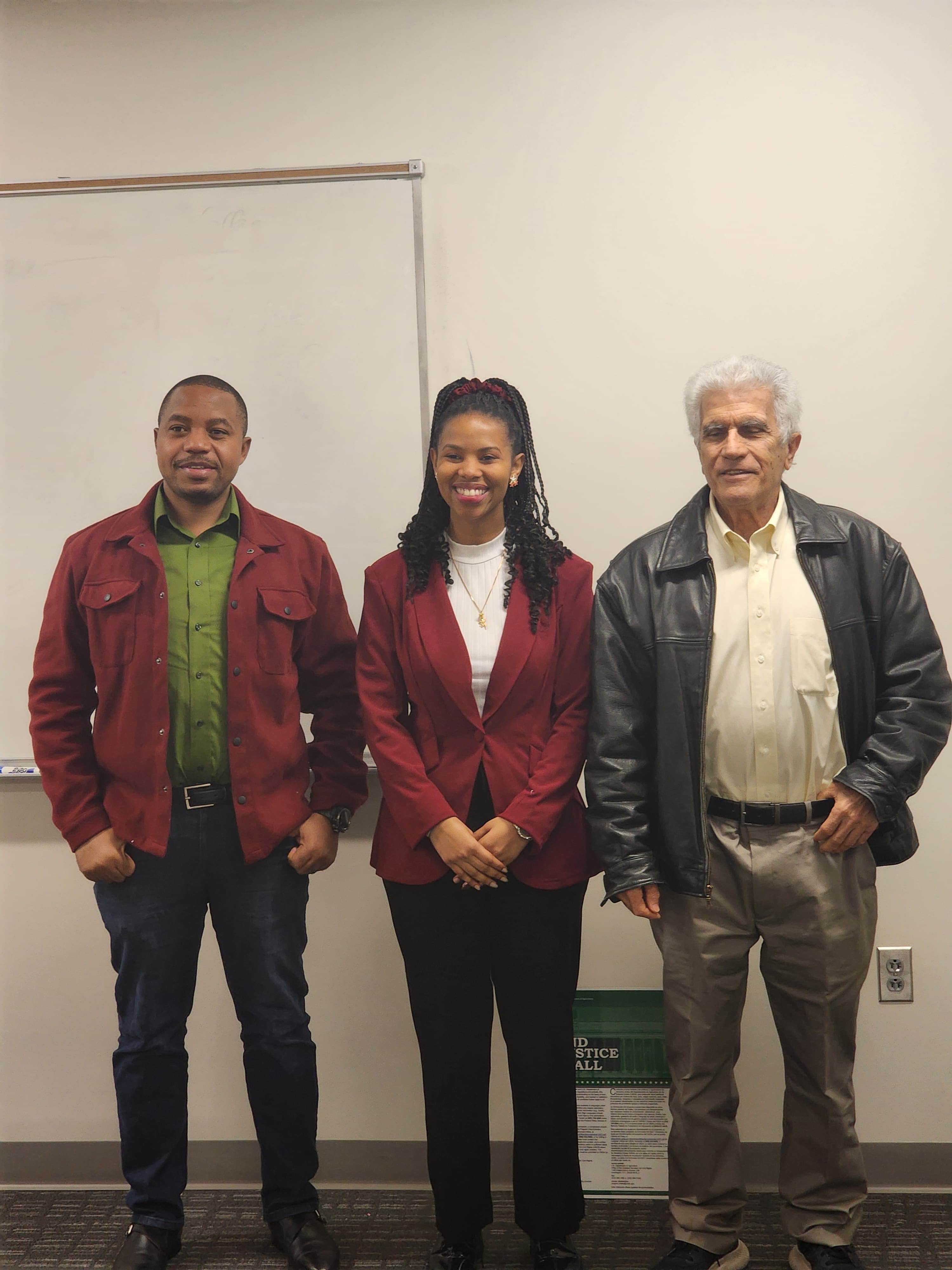
Germaine Akeza sucessfully defends her thesis proposal on Optimizing Red-Light Intensity to Maximize Lycopene and Other Carotenoids Accumulation in Tomato.
Onward Upward…
#ResearchInAction #GraduateSuccess #WatercressResearch #USDA #PlantScience
#SustainableAgriculture #AcademicExcellence #DepartmentHighlights
Urban Agriculture Team Receives New High Tunnel at Harold Benson Farm
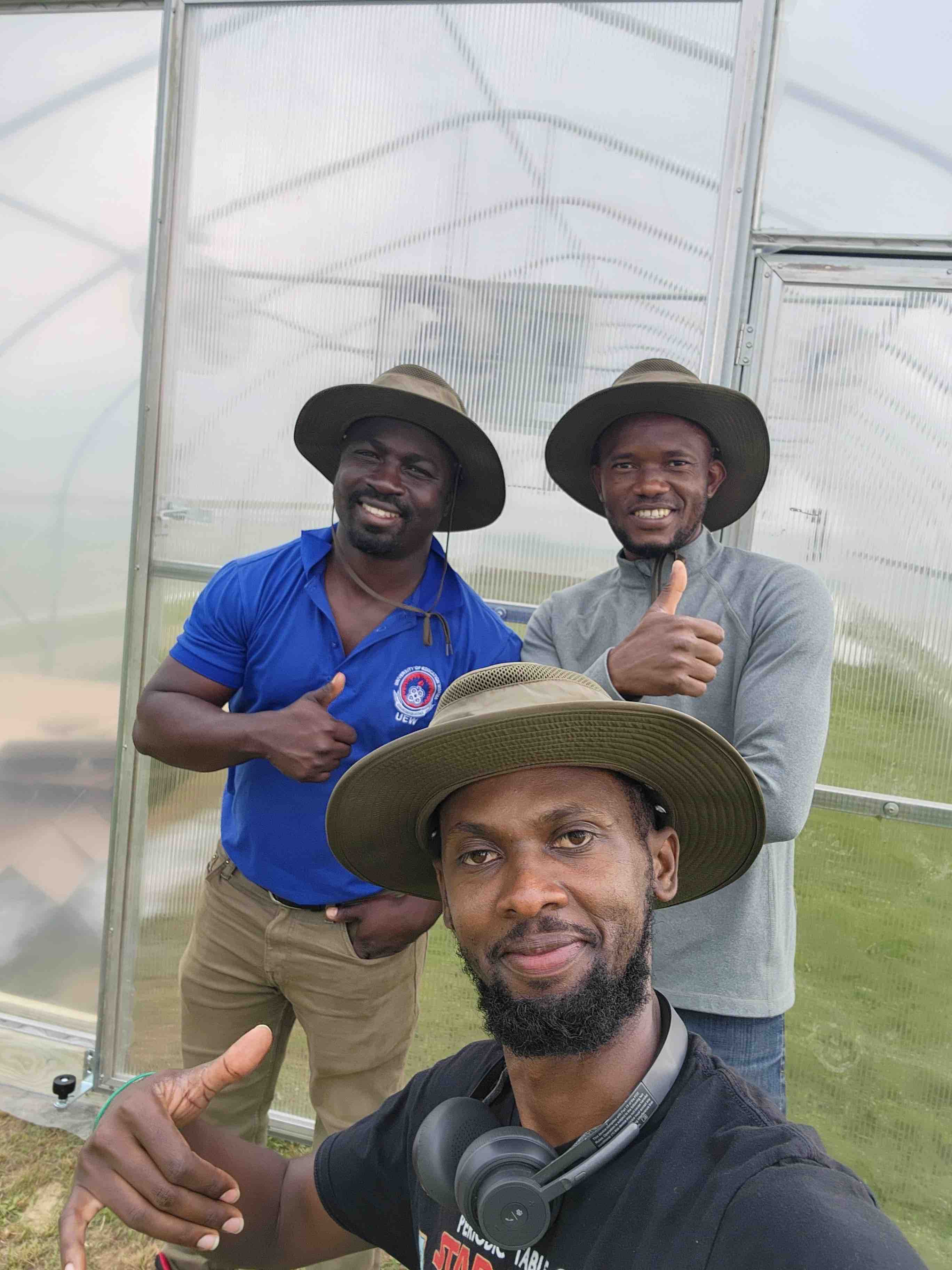
The urban/ CEA agriculture team recently received a high tunnel facility at the Harold Benson research and demonstration farm from the Schrock’s team. Our team can learn about how this facility operates and is constructed. We look forward to conducting many research trials with this new controlled environment agriculture facility. We are also engaging our students on the student-run farm in producing many varieties of veggies in the high tunnel throughout the coming seasons.
Urban Ag Extension in West Louisville, Kentucky Engages Community with Urban Ag Initatives
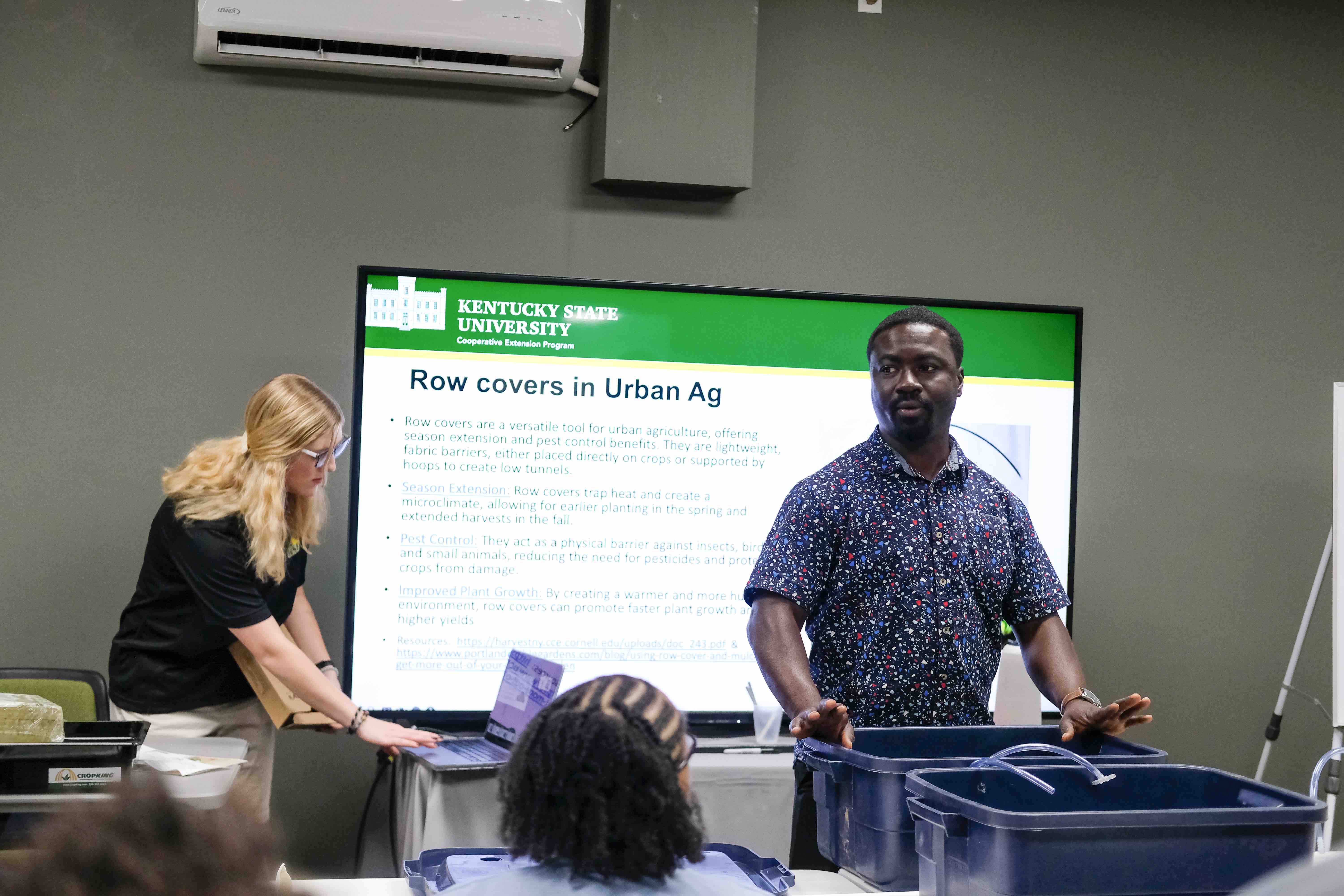
On Saturday, June 21 The Urban Growers Program at the Kentucky State University West Louisville Office hosted an Urban Agriculture presentation and demo. This involved Gill Finley (Program Leader in Community Resource Development) – leader of the program, Kelly Rawalt (Local Food Systems Coordinator) – coordinator of the program, Dr. Theoneste Nzaramyimana (Assistant Professor for Urban Agriculture) – curriculum for workshop, Cora Teets (Research & Extension Associate) – curriculum for workshop, Adekunle Adeyeye (Research Associate) – curriculum for workshop, Alex Kofi (Graduate Research Assistant) – curriculum for workshop, and 24 Urban Growers Program participants (urban growers in Louisville. This Extension activity took place at the West Louisville Extension Office and BearFruit & Grow farm owned by LeTicia Marshall (urban farmer, former KSU extension staff member). The lecture included topics: What is Urban Agriculture?, KY crop seasonality, Water irrigation systems, Crop rotations, Raised beds, Row covers, Hydroponic systems (including live demonstration), and Microgreen production (including live demonstration). It was a great oppurtunity to teach and engage with the community. Anonymous participant testimonial: “I really enjoyed the workshop on controlled agriculture systems and the various methods of growing food hydroponically. The farm tour to Bear Fruit and Grow was awesome—it’s always inspiring to see how others care for their land and support their communities. I found it both motivating and educational. I love this program!”
Urban Ag Team Donates Produce to West Louisville Senior Center
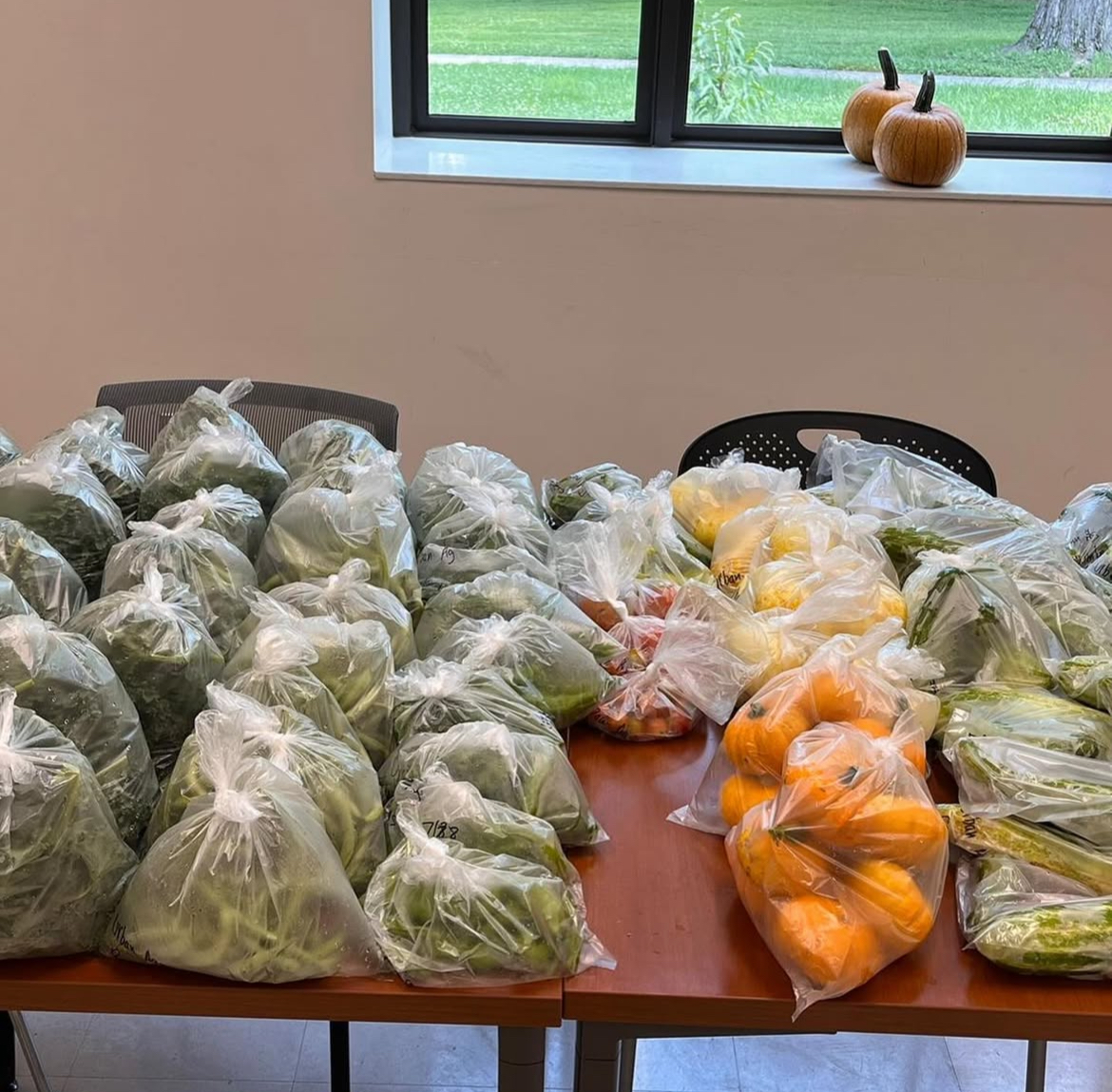
The Studnet Run Fatm at KYSU has been a huge success this summer, 2025. Our urban ag team recently donated fresh produce (cucumbers, cherry tomatoes, pumpkins, basil, beans, and squash) to the KYSU West Louisville Nutirition Educator, Nicole Daniels, who donated our harvest to a senior center and food pantry in West Louisville. "Thank you so much for providing the vegetables last week for the eating healthy on a budget session for individuals living with diabetes. They were presently surprised! I had a few extra and donated them to the pantry of a local family health clinic that focuses on pediatrics. We are trying to build programming with the location, and they were elated as well." We hope to bring more fresh produce to our communites, one vegetable at a time.
KYSU Urban Ag Team Partners with MANRRS Organization to Advocate for KYSU Urban Agriculture and Donate Produce to KYSU Students
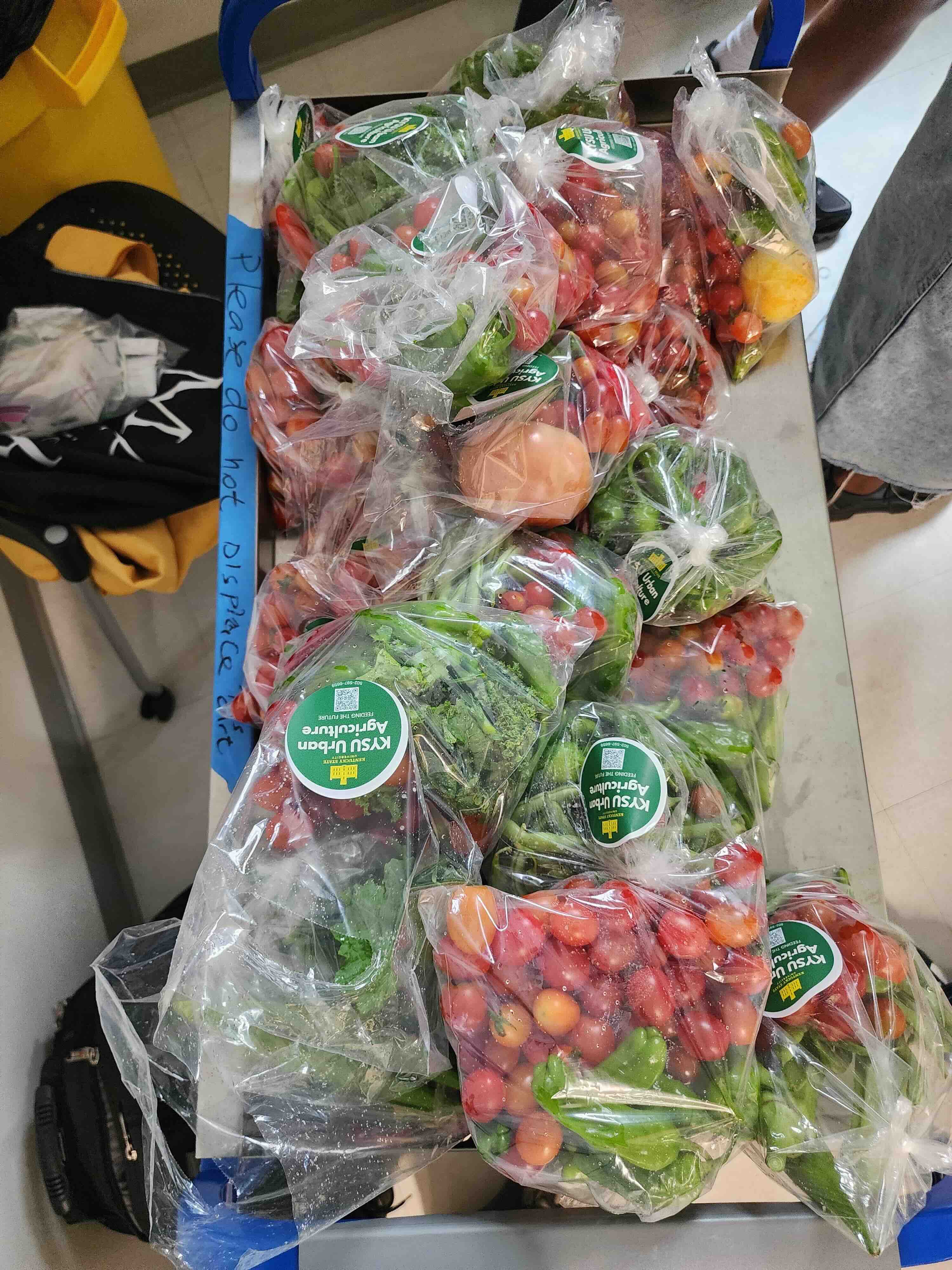
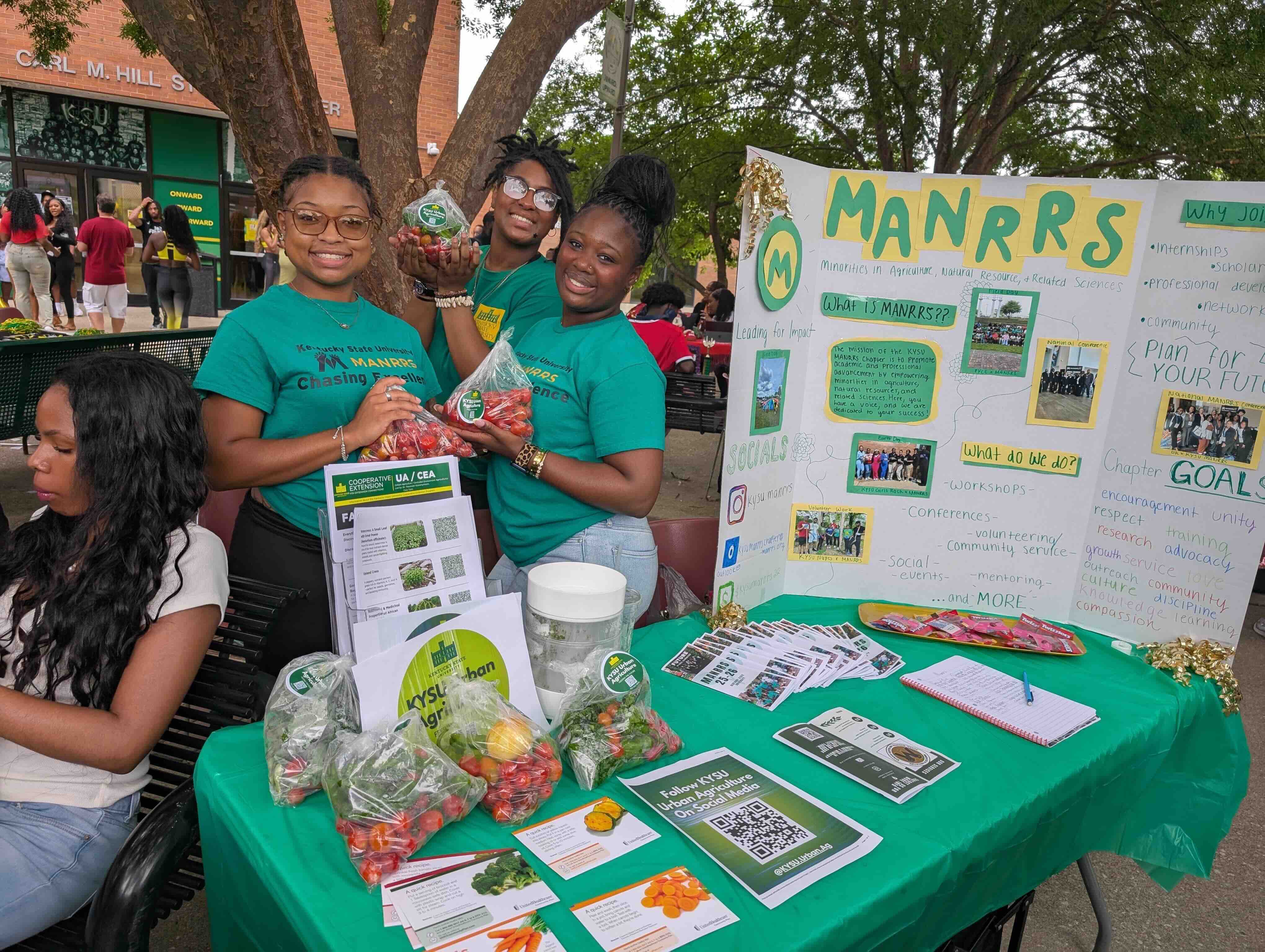 On August 20th, 2025 the MANRRS, Minorities in Ag, Natural Resources, and Related
Sciences partnered to showcase their organizations at the KYSU Extravaganza event.
This event brought studnets and organizations across campus together to learn from
each others interests. The Urban Ag team was able to provide a wide array of produce
from the student run farm in variety bags to students. The donation had a variety
of veggies like cherry tomatoes, okra, sweet peppers, kale, and green beans for the
students to try and learn about. We also provided fact sheets about the produce and
taught students about our missions to reduce food insecurity. This was a great chance
for our team to support the campus body through providing fresh and nutritious produce
and great information about urban gardening.
On August 20th, 2025 the MANRRS, Minorities in Ag, Natural Resources, and Related
Sciences partnered to showcase their organizations at the KYSU Extravaganza event.
This event brought studnets and organizations across campus together to learn from
each others interests. The Urban Ag team was able to provide a wide array of produce
from the student run farm in variety bags to students. The donation had a variety
of veggies like cherry tomatoes, okra, sweet peppers, kale, and green beans for the
students to try and learn about. We also provided fact sheets about the produce and
taught students about our missions to reduce food insecurity. This was a great chance
for our team to support the campus body through providing fresh and nutritious produce
and great information about urban gardening.
Learn more about MANRRS below:
https://www.facebook.com/p/KYSU-Mannrs-100077176636036/
|
|
|
|
Student Run Farm Donates Produce to Access Food Pantry & Simon House In Frankfort, Kentucky
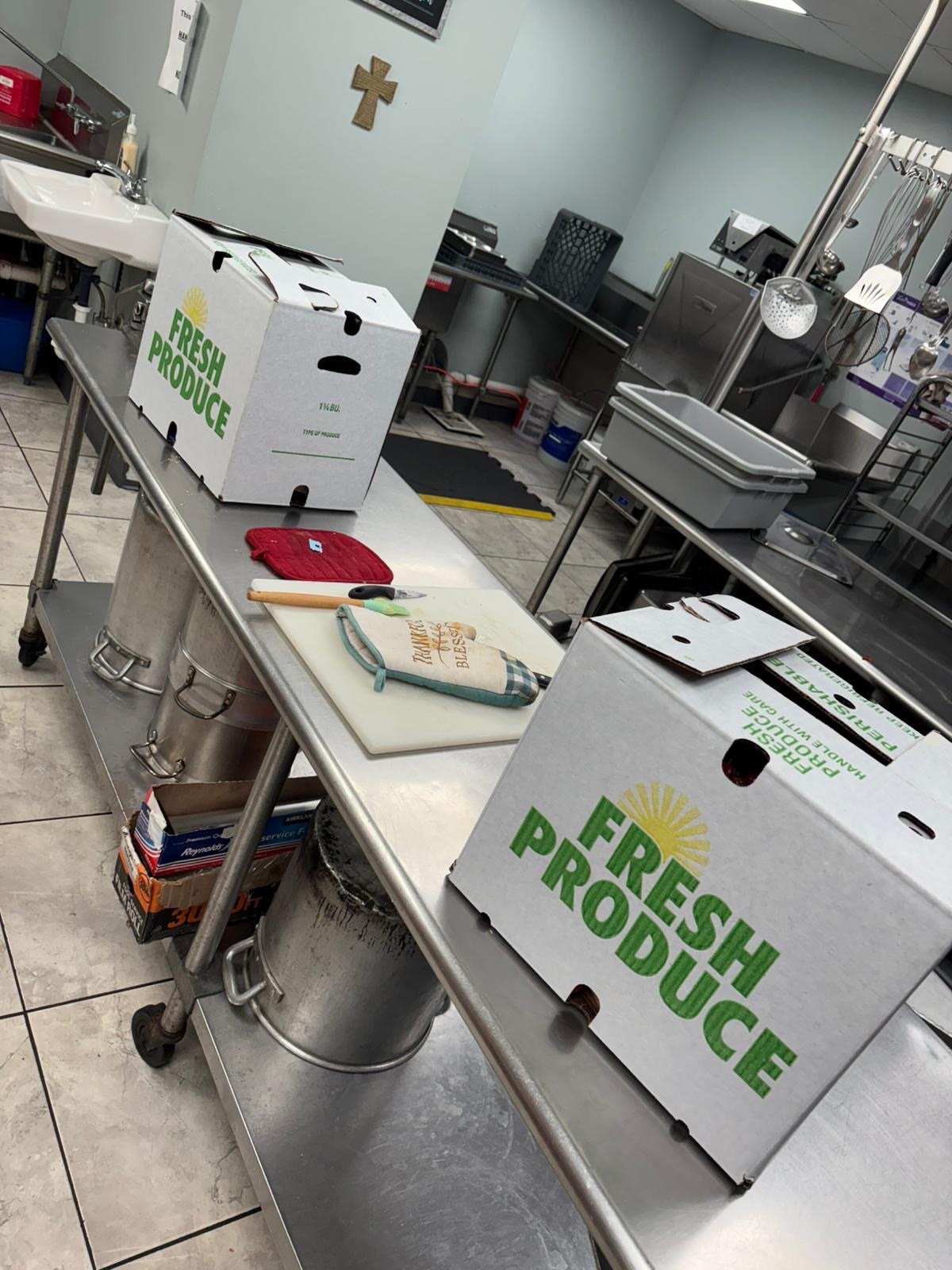
The Student Run Farm Takes Pride in Donating produce to local food pantries and shelters. This summer they took the intative to provide fresh and nutrtious veggies from the farm to Access Food Pantry and Simon House. They donated a variety of heirloom tomatoes, cherry tomatoes, sweet peppers, and spicy peppers in July, August, and September 2025. They hope to distribute more to the community as they harvest more in the future. It is a very humbling and rewarding experience for the students to see their hard work help others in need.
Student Run Farm Provides Fresh Peppers to Find Your Yes, Kids Event at Kentucky State University Farm Field Day
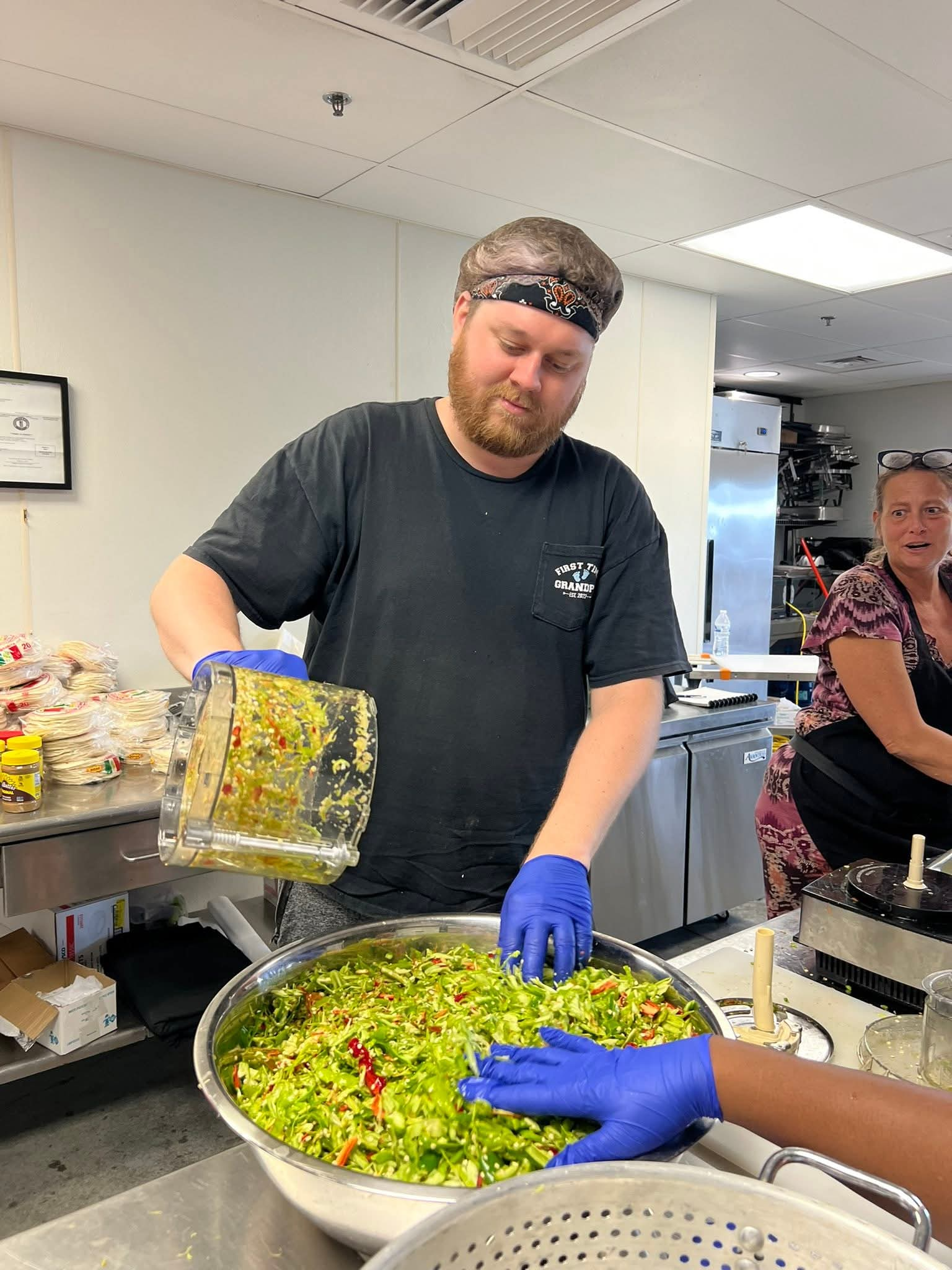
The Student-Run Farm provided nearly 50lbs of freshly harvested shishito and bell peppers to The Find Your Yes, Kids event at the Harold Benson Farm in July, 2025. The peppers were used to introduce youth to different types of crunchy vegetables. The KYSU nutrition education representative, Robin, provided a nutrtious snack with vegetable options such as carrots, celery, and peppers on a whole grain tortilla with sunflower butter. The urban agriculture team was proud to showcase Kentucky State University grown vegetables to a community event.
Learn more about Yes, Kids:
https://state-journal.com/2025/09/12/local-sixth-graders-to-participate-in-find-your-yes-day/
https://justsayyesky.org/yes-card/
Nia Ragland Successfully Defends her Masters Thesis Proposal: Comparative Analysis of Beta Carotene Accumulation in Two Kale Varieties Grown in Hydroponic Versus Soil Systems
On September 10th, 2025: Nia Ragland, Urban Agriculture Graduaate Student and Research Assistant, successfully defended her thesis proposal titled: Comparative Analysis of Beta Carotene Accumulation in Two Kale Varieties Grown in Hydroponic Versus Soil Systems. She aims to conduct her research this winter 2025 and spring 2026 at the Harold Benson Farm and Greenhouse. The purpose of her study is to evaluate beta carotene accumulation in Mamba and Karolione Sweet Kale under hydroponic and soil based cultivation systems. This research aims to assess how these systems affect crop yield, visual morphological characteristics and phytonutrient levels that humans need to survive. Her thesis commitee consisting of: Dr. Theoneste Nzaramyimana, Dr. Valens Niyigena, Dr. Maheteme Gebremedhim, and Dr. Makumbe alongside the Urban Agriculture team will help support her research journey.
